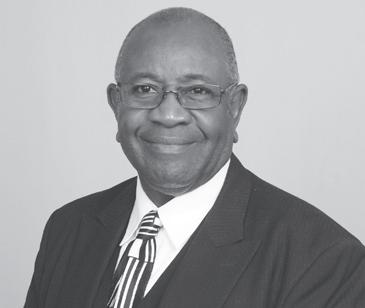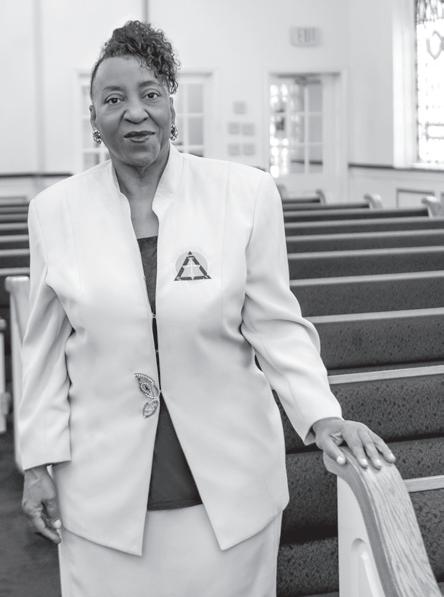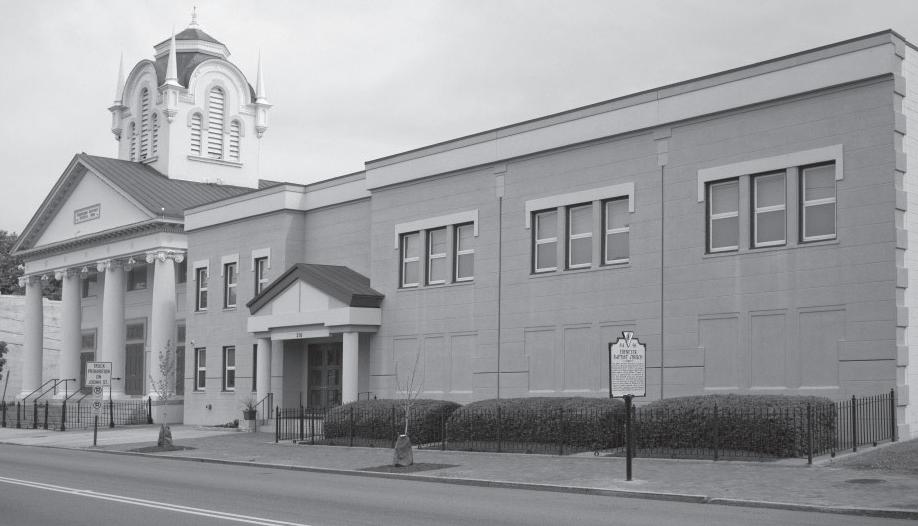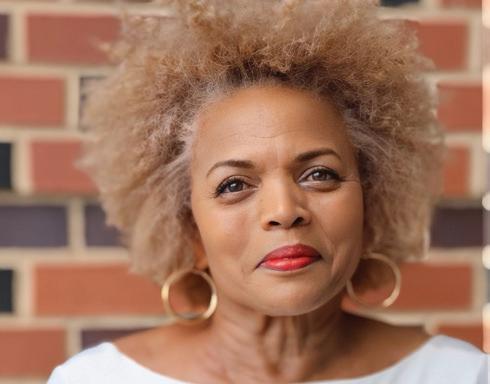
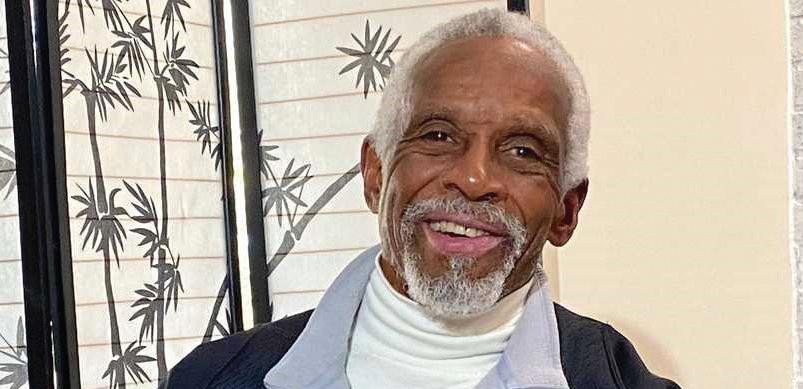



By Markus Schmidt
a slimmer margin than her 4-point advantage in the previous Commonwealth Poll.
a 45% to 42%
marking a 9-point
43%,
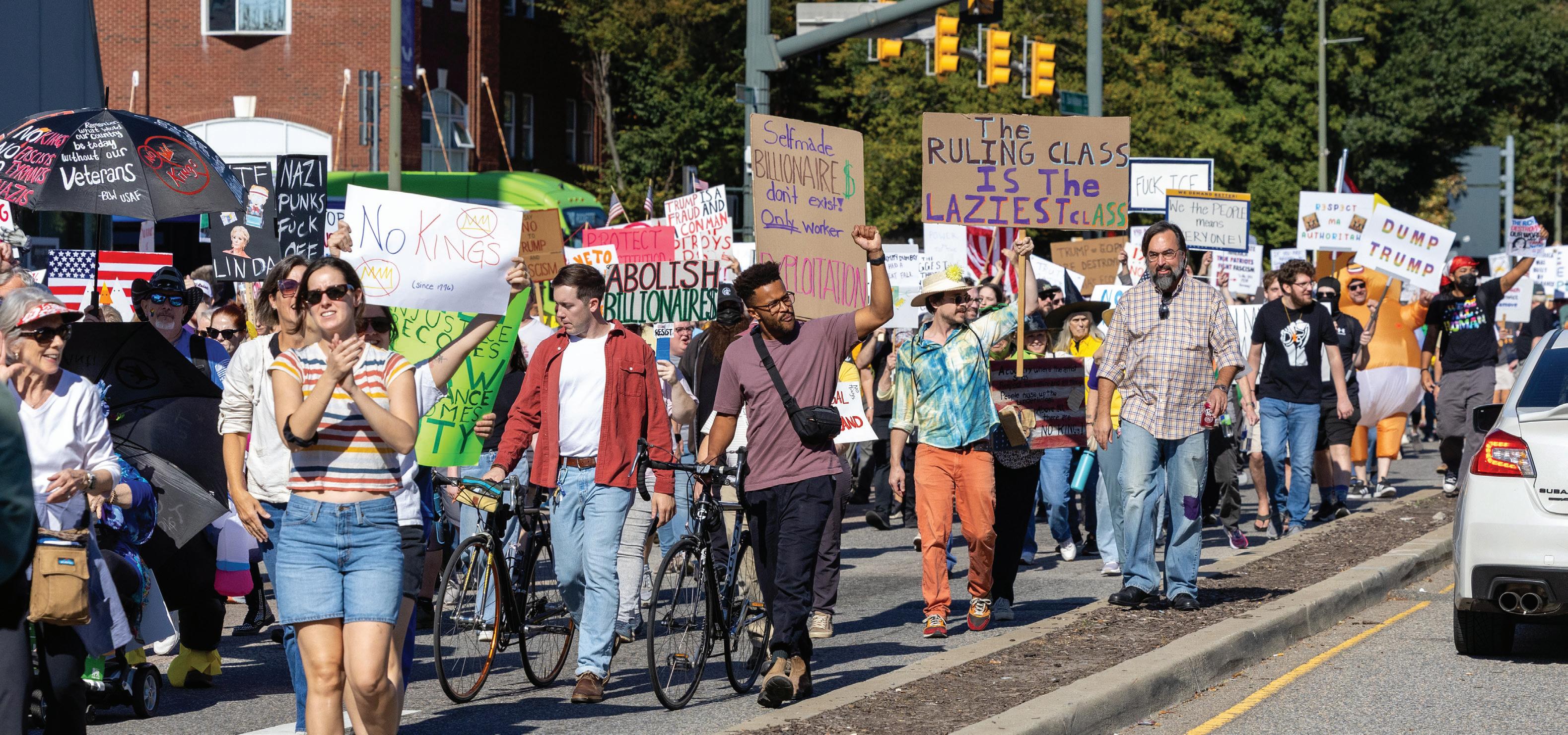
By George Copeland Jr.
Thousands of people gathered in Richmond on Saturday as part of more than 2,700 No Kings II protests held across the nation.
The Richmond event, organized by groups such as 50501 Virginia and RVA Indivisible, was one of several held in Virginia in response to policies by the Trump administration that organizers say undermine civil rights and democracy.
Previous protests have attracted large numbers, and attendance was even higher over the weekend, with at least 14,000 people at the Richmond protest, according to organizers, and the national No Kings team reporting nearly 7 million attendees nationwide.
About a dozen counterprotesters were present at the start of the event, though no conflicts were reported during the afternoon.
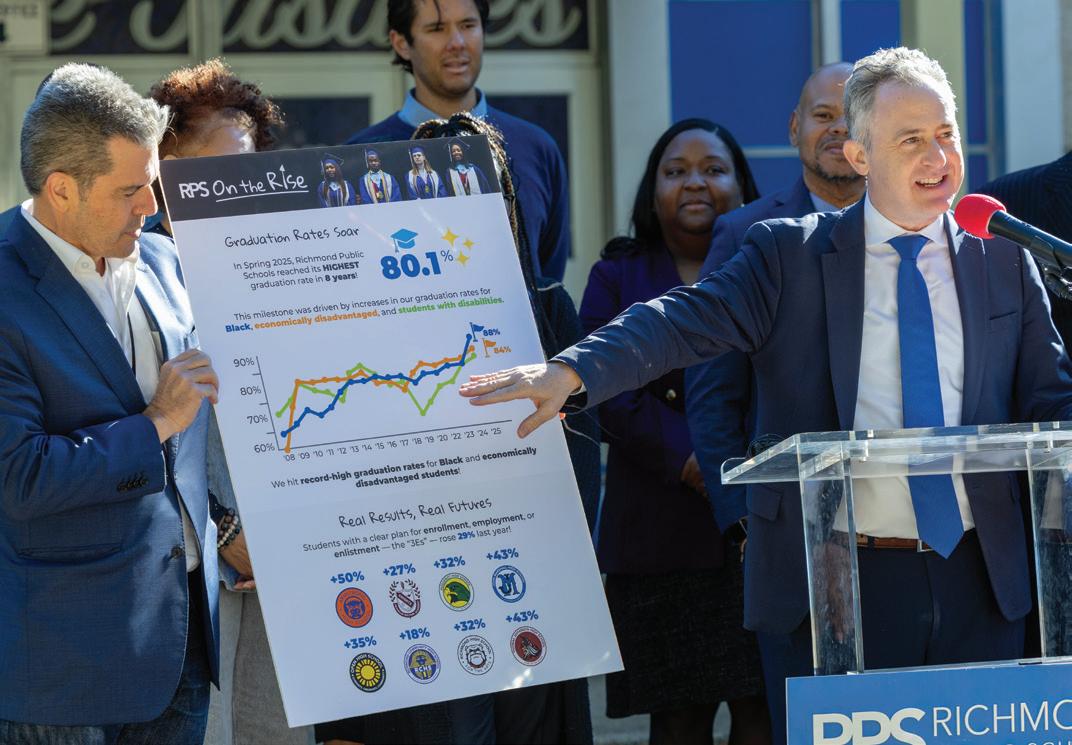
The enthusiasm of the crowd was sustained across hours of activity, which included a march from the state Capitol to Monroe Park, musical performances at both locations, and speeches from organizers decrying the state of the country and calling for an inclusive, transformative vision for the nation.
“History shows that when power is at its most corrupt, it’s primed for the people to seize it,” said Reed Baldwin of the Party for
By George Copeland Jr.
John Marshall High School buzzed with excitement Friday morning as Richmond Public Schools officials and students gathered to celebrate the division’s record-high graduation rates.
“I feel like this senior year has not disappointed me at all,” John Marshall High senior ShaNiya Carter said during a news conference on the school’s front lawn, “and I feel like it will not disappoint me in the end either.”
John Marshall High is one of four Richmond Public Schools to achieve a 100% on-time graduation rate for the 2024-25 school year, according to data presented at a recent School Board meeting. It’s also the first comprehensive high school in the division to reach that milestone, joining Open High School, Richmond Community High School and Richmond Virtual Academy.
The graduation rates, along with rising or steady numbers
By George Copeland Jr.
from 3rd District Council member Kenya Gibson and Mayor Danny Avula’s administration. Both measures would post FOIA requests on the city’s website, but the ad-
ministration’s version includes guidelines limiting what could appear in the library. Discussions over how to handle the requests have been ongoing for months, and the proposals were a key topic during the meeting. “A paper with discretion is simply not transparent,” said Gibson, who suggested forwarding her proposal with a recommendation for approval while continuing discussion on the city’s plan. She voted against continuing both measures. “The intent of this paper is to bring radical
transparency.”
Gibson’s ordinance was introduced in September and has been amended in response to comments from Avula’s administration. The changes exempt publishing requests made to the Richmond Police and Fire departments and the departments of Social Services and Emergency Communications, Preparedness and Response. City officials have voiced concerns about the broadness of the proposal, its
Socialism and Liberation Virginia, addressing the crowd in Capitol Square. “We’re all out here today to reclaim that power, the power that generations before us across the world, across the country, have fought for and continue to fight for today.” Like previous protests, the need for collective efforts to build a better country
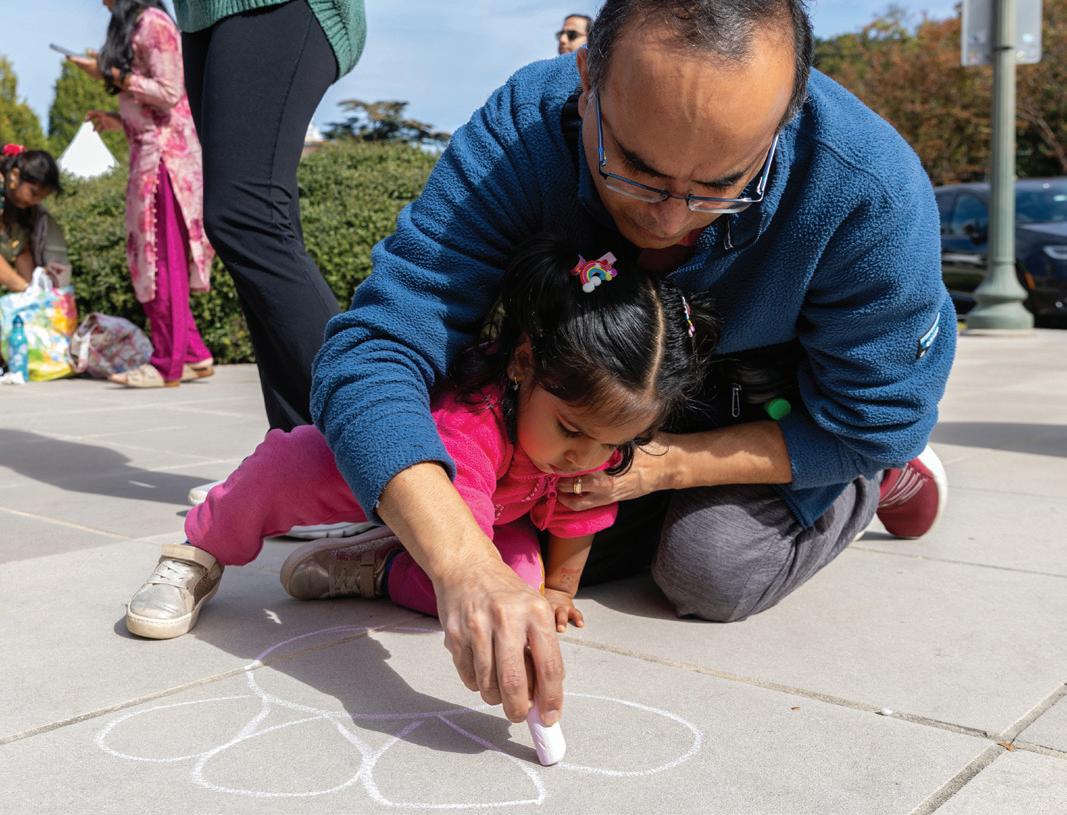

Former President Barack Obama is scheduled to join former U.S. Rep. Abigail Spanberger for a campaign rally Saturday, Nov. 1 in Norfolk, marking the first visit to Hampton Roads by a Democratic president in more than a decade.
Obama, who last campaigned in the region in 2012, endorsed Spanberger last week in her campaign for Virginia governor. The endorsement cited her focus on lowering costs for families and protecting voting and reproductive rights.
“Virginia’s elections are some of the most important in the country this year, and I am proud to endorse Abigail Spanberger for governor,” Obama said in a statement released by the campaign.
Spanberger, who represented Virginia’s 7th Congressional District, is seeking to succeed Republican Gov. Glenn Youngkin, whose term ends in January. Details about the rally, including the time and location, have not been released.

Richmond voters are casting ballots early for the 2025 elections, including races for governor, lieutenant governor, attorney general and members of the House of Delegates. Early voting allows residents to vote in person before Election Day and can help reduce wait times at polling places.
In Richmond, early voting locations include the Office of Elections at 2134 W. Laburnum Ave., City Hall at 900 E. Broad St. and the Hickory Hill Community Center at 3000 E. Belt Blvd. Henrico County voters can visit the Western Government Center at 4305 E. Parham Road, the Eastern Government Center at 3820 Nine Mile Road or the Varina Library at 1875 New Market Road. Chesterfield County residents may use the Central Library at 7051 Lucy Corr Blvd.
Early voting runs through Friday, Nov. 1. Hours are generally Monday through Friday from 8:30 a.m. to 5 p.m., with select Saturdays also open from 9 a.m. to 5 p.m.
The deadline to register to vote in Virginia is Friday, Oct. 24. Residents can register online, by mail or in person at their local registrar’s office. Voters who prefer to vote by mail can request absentee ballots through the Virginia Department of Elections website or by contacting their local registrar. Requests must be submitted by the posted deadlines to ensure ballots are received and returned in time.
Election officials encourage Virginians to take advantage of early voting to avoid long lines and ensure their participation in the democratic process. For information on locations, hours, registration and deadlines, visit elections.virginia.gov.
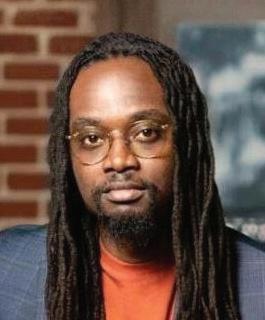
Free Press staff report
The Maggie Walker Community Land Trust recently named Derrick Billie to its board of directors. Billie brings experience in tech-driven real estate development that connects affordable housing, construction innovation and community impact. He said he hopes to use that background to help strengthen Richmond-area neighborhoods and expand access to affordable housing.
“For me, this role represents a full-circle moment, turning lived experience into lasting impact. I believe everyone deserves access to high-quality housing that not only shelters but uplifts, preserves values and strengthens the foundation of our future,” Billie said.
Jeisson Apolo Armas, chair of the MWCLT board, said Billie’s leadership and experience will be an asset to the organization as it grows.
“His passion for community building and his wealth of experience will be invaluable as we continue to expand our impact and help more families achieve stable, affordable homeownership,” Armas said.
The Maggie Walker Community Land Trust is a Richmondbased nonprofit focused on creating and maintaining affordable homeownership through land stewardship and community partnerships. More information is available at mwclt.org

A Frontier Airlines flight from Hartsfield-Jackson
Slices of life and scenes in Richmond
By Victoria A. Ifatusin
Richmond Public Schools administrators and representatives from employee unions have completed the first week of an intense monthlong series of discussions about changes to the collective bargaining process.
The meetings come after the School Board deferred a vote on potential changes until November’s meeting. The public comment before the deferment was filled with union members
for negotiations. Superintendent Jason Kamras assured members it was.
“Personally, I felt like it was a compromise,” said Andrea Bryant, president of the Richmond Education Association. “While the members would’ve loved for it to be voted down, the fact that we have more time gives us the chance to really put in meaningful input and hope that the administration takes it into account.”
Kamras said before the first
contract negotiation, while the unions are requesting an unlimited amount.
“The administration’s response was just that they don’t want negotiations to take a long time. So if you choose too many topics, they’re fearful that basically we’re going to repeat the first time, even though the process is supposed to get easier every time,” Bryant said.

Richmond Public Schools administrators and union representatives met last week to begin discussions on changes to the collective bargaining process. Community members and educators gather outside City Hall on Oct. 6, to show support for the unions and urge a collaborative approach to the negotiations.
asking the board to vote no on the matter, arguing that unions did not have enough time to review the revisions RPS proposed.
Some members were concerned at October’s meeting that the amount of time was not enough to implement a fully agreed-upon new process
Free Press staff report
As fall temperatures dip, seniors and low-income residents across the Richmond area are being offered ways to stay warm this winter, from free weatherization kits to financial assistance for heating bills.
The City of Richmond Department of Public Utilities is distributing weatherization kits to seniors 65 and older at multiple locations this fall. Each kit includes insulating weather stripping, draft-stopping outlet covers, and an energy-efficient light bulb to help reduce drafts and lower heating costs. Kits are available on a first-come, first-served basis while supplies last.
“Helping Richmond residents prepare for colder weather is an important part of our mission to serve the community,” said Rhonda Johnson, DPU’s Senior Public Information Officer.
Distribution events will be held from 10 a.m. to 2 p.m. on two Thursdays in November: Nov. 6 at the East District Ini -
tiative, 701 N. 25th St., and Nov. 13 at the Brookhill Azalea Shopping Center, 5300 Chamberlayne Road, Suite 3. Kits will be given out on a first-come, first-served basis while supplies last.
Meanwhile, Hanover County residents who need help paying heating bills can apply for the Fuel Assistance Program through the Department of Social Services. Applications are being accepted through Nov. 14. The program, offered through the Virginia Energy Assistance Program, assists low-income households that pay their own heating bills. Eligible households must have an income below 150% of the federal poverty level, and notifications of eligibility will be sent in late December.
Residents can apply online at Virginia CommonHelp, by calling (855) 635-4370 or through the Hanover Department of Social Services, 12304 Washington Highway. For more information, call (804) 365-4100. For more on Richmond’s weatherization kits, visit rva.gov/public-utilities.
meeting that the administration is going to hold off on beginning a new round of negotiations until the process is finalized. Contracts for unions like REA expire in June of next year, and collective bargaining was set to begin this month.
“As long as we have an agreement by then, we’re OK,” he said.
The latest changes the administration made before the School Board meeting incorporated feedback the division received from the unions, school staff and board members, Kamras emphasized. For example, he said he heard a desire for an independent panel hearing process as part of any disputes related to collective bargaining, and added language for that back in.
“Nothing in the document is in any way intended to constrain teachers’ freedom of expression,” he said.
The first two meetings took place last week between the superintendent, school administrators and leaders of the unions representing teachers and support staff, bus drivers, custodians and managers — REA, Laborers’ International Union of North America Local 804 and Teamsters Local 322 and 592.
Bryant said REA and Teamsters immediately discussed a proposed reduction in topics on which parties can negotiate. RPS proposed capping the number of topics to two during every
REA has suggested a progressive increase in the topics, meaning that the number of topics on which each party can negotiate will steadily increase each contract, before making it unlimited in the future. The union has provided language with that provision that Bryant said the administration is now reviewing. Regardless of the number of topics, the process will get better, making negotiations easier, she said.
While it appears that the union has been absent while the matter was unfolding, Chris Hollis, assistant business manager with LiUNA, said LiUNA held meetings with the administration before the October meeting about changes to the process. He also said that the group was unable to join REA and Teamsters during the rally before the October meetings because leaders were out of town.
“We did have a lot of concerns as far as some of the revisions that seemed like in a sense they were gutting it, until we got clarification on what those revisions were,” he said.
Hollis said he and other leaders were at recent meetings with REA and Teamsters, and they have provided similar suggestions as REA’s to administrators. He gave credit to REA members, including Bryant, saying that the group has been instrumental in bringing all unions together to discuss the matter.
“We’re really connected with other labor unions to sit at the bargaining table,” he said. “We definitely have to make sure that there’s fairness and equity within this resolution, and that it doesn’t shortchange anybody.”
This week, school officials will hold individual meetings with each board member and
will make revisions to the negotiation process based on the feedback for unions to review later. Virginia law makes meetings of elected officials subject to the Freedom of Information Act if three or more members gather together, regardless of the circumstances.
Bryant said REA and Teamsters wanted a process where the School Board was actively involved by being at the meetings.
“But we understand that apparently this process was approved by the School Board, so we have to follow what they’re asking us to do,” she said.
Board Chair Shavonda Fernandez (9th District) referred to state law, and stated in an email that if more than two members were to attend, the meeting would need to be rescheduled so it could be noticed.
“I certainly don’t want to do anything to delay the process as the collective bargaining negotiations have already been pushed back to give more time for the administration to connect with the unions,” she said.
School Board members also requested that the resolution specify what happens if the administration makes future changes to the process. Now, unions must be notified in writing 30 days about any revisions before the School Board considers and votes on the amendments, according to a document entailing the administration’s schedule in meeting with the unions. Fernandez said the unions’ feedback is important to the entire board.
“It is the board’s goal and desire for all parties to come to a consensus as quickly as possible yet allow time and space for collaborative conversations to take place. We are committed to seeing the process through,” she said.
Kamras believes that all sides will come to an agreement and “find an appropriate level ground” before the November meeting, saying that a majority of individuals have a common interest in making sure that collective bargaining is financially and operationally sustainable. When asked if she sees REA being content with the final process, Bryant said that while some union members are adamant on the process not changing at all — and she respects those views — it is important to be practical in doing the best she can to make the process work for all members moving forward.
“I’m just hoping that we get some middle ground,” she said. “The hope right now [is] that everybody ends up at least somewhat happy. We may not be ecstatic about the conclusion, but at least we’ll know what we’re working with.” This story originally appeared on TheRichmonder.org.


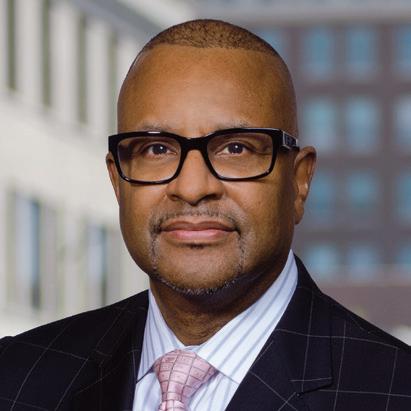
Victor Branch President, Bank


about “two bullets to the head” for a former Republican House speaker and the death of the speaker’s children. The controversy has drawn bipartisan attention and reshaped the AG race.
“The race for lieutenant governor shows John Reid within 1 percentage point of Ghazala Hashmi (Hashmi 44% to Reid 43%),” said former Gov. L. Douglas Wilder, who founded the VCU school that conducts the poll.
“The attorney general’s race shows Jason Miyares moving into the lead over Jay Jones (Miyares 45% to Jones 42%).
These results highlight that, with several weeks to go before the election, voters are paying attention to what the candidates are doing — and what they have done — as a precursor to what they will do if elected,” Wilder wrote.
Wilder noted that the race for governor remains relatively stable compared to the others but said Democrats’ narrowing advantage underscores the volatility of Virginia’s electorate in statewide races.
“Our school’s poll results reflect little change in the race for governor, though the lead for Democrats has narrowed (Spanberger 49% to Earle-Sears 42%),” he said.
The survey also asked voters which issues would most influence their decisions in the upcoming election. The rising cost of living topped the list, cited by 27% of respondents — reinforcing economic pressures as the dominant theme of the race.
Immigration ranked second at 14%, followed by women’s reproductive rights at 12%, marking a reversal from the previous poll, when reproductive rights placed ahead of immigration.
The shift suggests that while inflation continues to dominate public concern, debates over border policy and abortion access are also shaping voter motivation in the final weeks of the races.
The poll also measured voter sentiment on which party should control the House of Delegates, where all 100 seats are up for grabs this fall.
Among registered voters, 47% said they want Democrats to hold a majority, while 44% prefer Republican control. Independent voters remain largely undecided — with 28% favoring a Democratic majority, 23% preferring Republicans and nearly half expressing no opinion.
Those figures mirror the narrow statewide dynamics reflected in the gubernatorial and down-ballot races, where neither party has a commanding lead heading into November.


was stressed throughout the event by attendees and speakers from groups including the Richmond Education Association, Prisoners’ Rights Clinic and Richmond Defensa.
With Virginia’s elections underway, the importance of voting and helping others cast their ballots was repeatedly raised as an example of tangible action by speakers and attendees.
Richmond Public Schools reaches 8-year high in graduation rates
students, 84% for economically disadvantaged students and 83% for students with disabilities. According to the division, the rates for Black and economically disadvantaged students are the highest since the Virginia Department of Education began tracking the data in 2008.
Superintendent Jason Kamras credited the division’s investments in alternative education programs, higher teacher salaries over the years and support from city funding as key factors behind the rising graduation rates.
He said those efforts have also helped more RPS students prepare for life after graduation, whether through college, work or military service.
“It’s sustained investment, building these programs over time that we’re now beginning to see the fruit of all those labors,” Kamras said.
Areas of improvement remain. Graduation rates for multilingual and Hispanic/Latino students fell in 2025 while dropouts increased, and Kamras said work is underway to expand the number of alternative programs, bilingual staff and support systems.
Kamras also acknowledged ongoing challenges for RPS, including the impact of recent federal immigration policies on student and family mental health, decades of state-level disinvestment in education and the lasting effects of the COVID-19 pandemic.
Despite those concerns, optimism ran high at Friday’s event.
“I 110% believe that we will have a 100% graduation rate here at John Marshall High School and honestly at every Richmond public school,” said senior Eva Lorenzo, president of the class. “We are on the rise.”
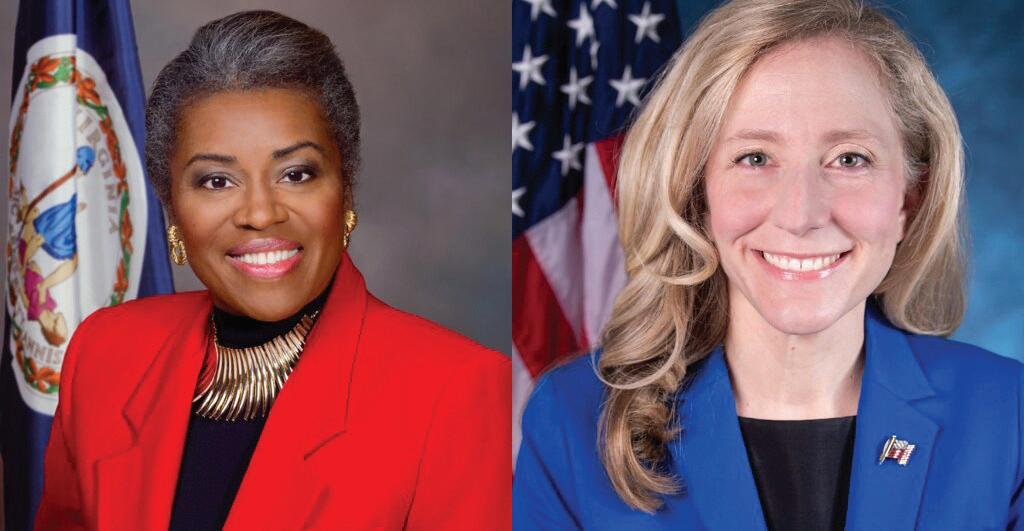
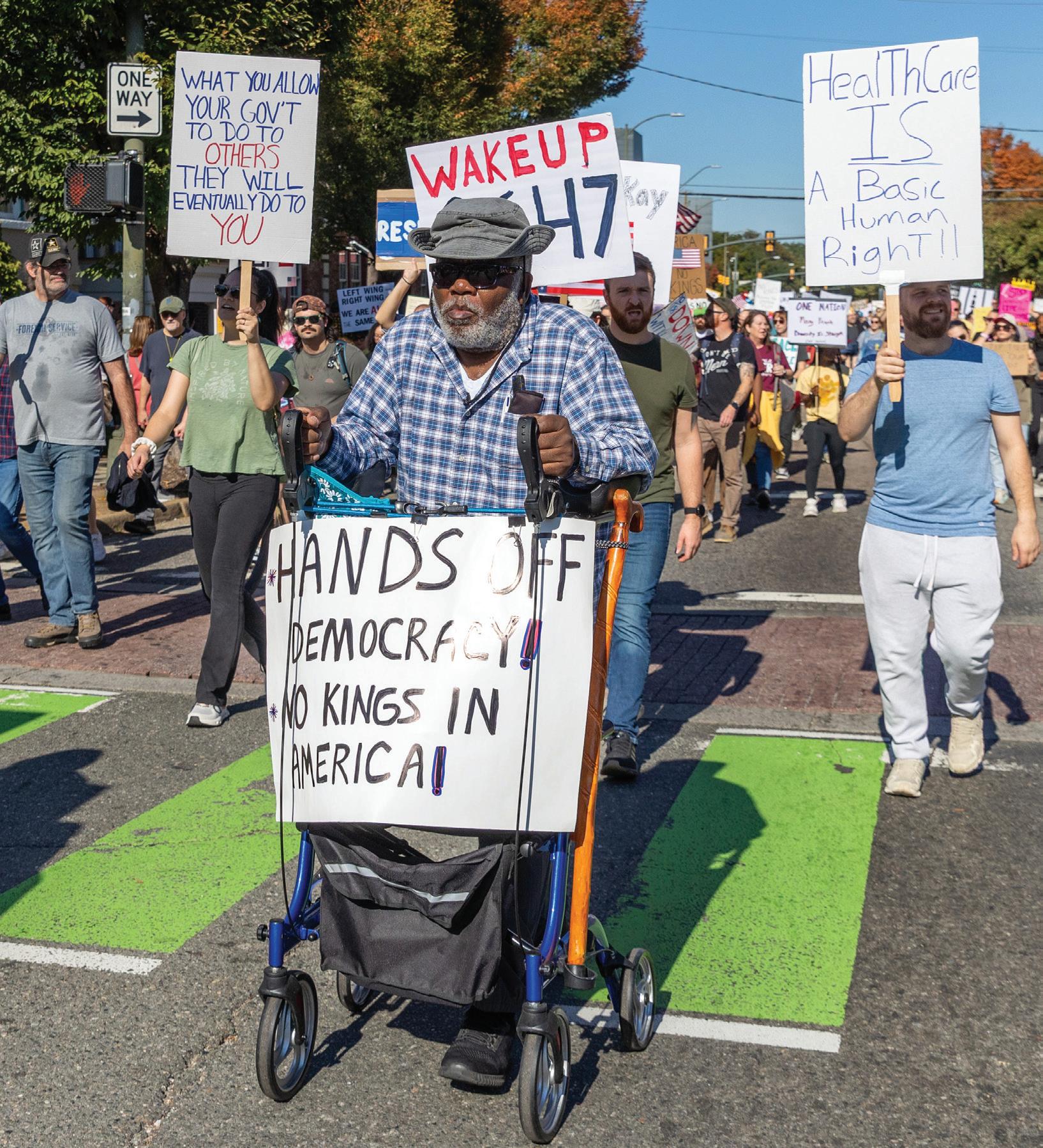
Those present also discussed continuing their activism beyond the protest, through community organizing and advocacy efforts.
“We cannot go quietly,” said Richmond resident Sidney Haisley, who attended the event with her two dogs, both wearing signs decrying the war in Gaza and deportations carried out by ICE. “We need to be loud, we need to rage, we need to share what’s going on, and we need to protect those of us who can’t use their voices as loudly.”
operational costs, legal commitments and the potential to publish bad-faith requests that embarrass or endanger staff and residents, particularly children.
The city has presented its ordinance as one officials say would avoid those pitfalls.
“I think we absolutely need an ordinance like this,” Director of Communications Ross Catrow said during the meeting.
“We all just want to make sure that we’re minimizing harm while also fulfilling what we’re both looking for.”
Gibson, other council members and residents who spoke during the public comment period challenged the city’s stance, with some criticizing the alternative proposal for lacking transparency and potentially codifying discretion in the library.
Some also noted exemptions were already in place to avoid FOIA requests endangering minors and questioned how often requests were weaponized in the way city officials feared.
“If challenges arise … the policy can always be adjusted,”
Speakers also called for accountability not only from the federal government but from institutions and policies that have echoed its actions, citing the prison system, immigration practices and labor relations.
“We need to build each other up and do what we have to do,” said Leslie Cunningham, attending the protests for the first time alongside brother-in-law Terry Glenn. “Because there’s no way in the world we’re going back to what used to be.”
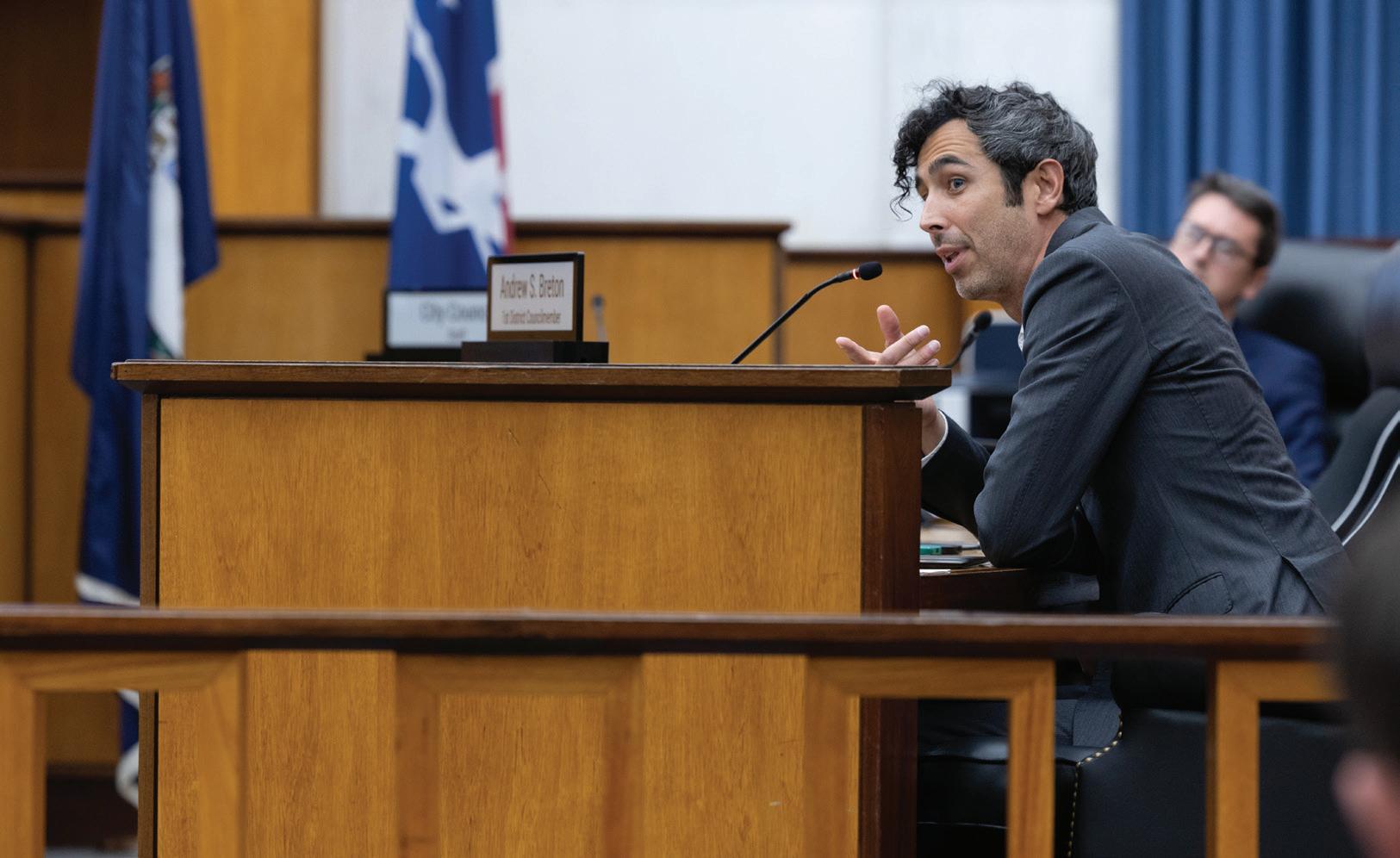
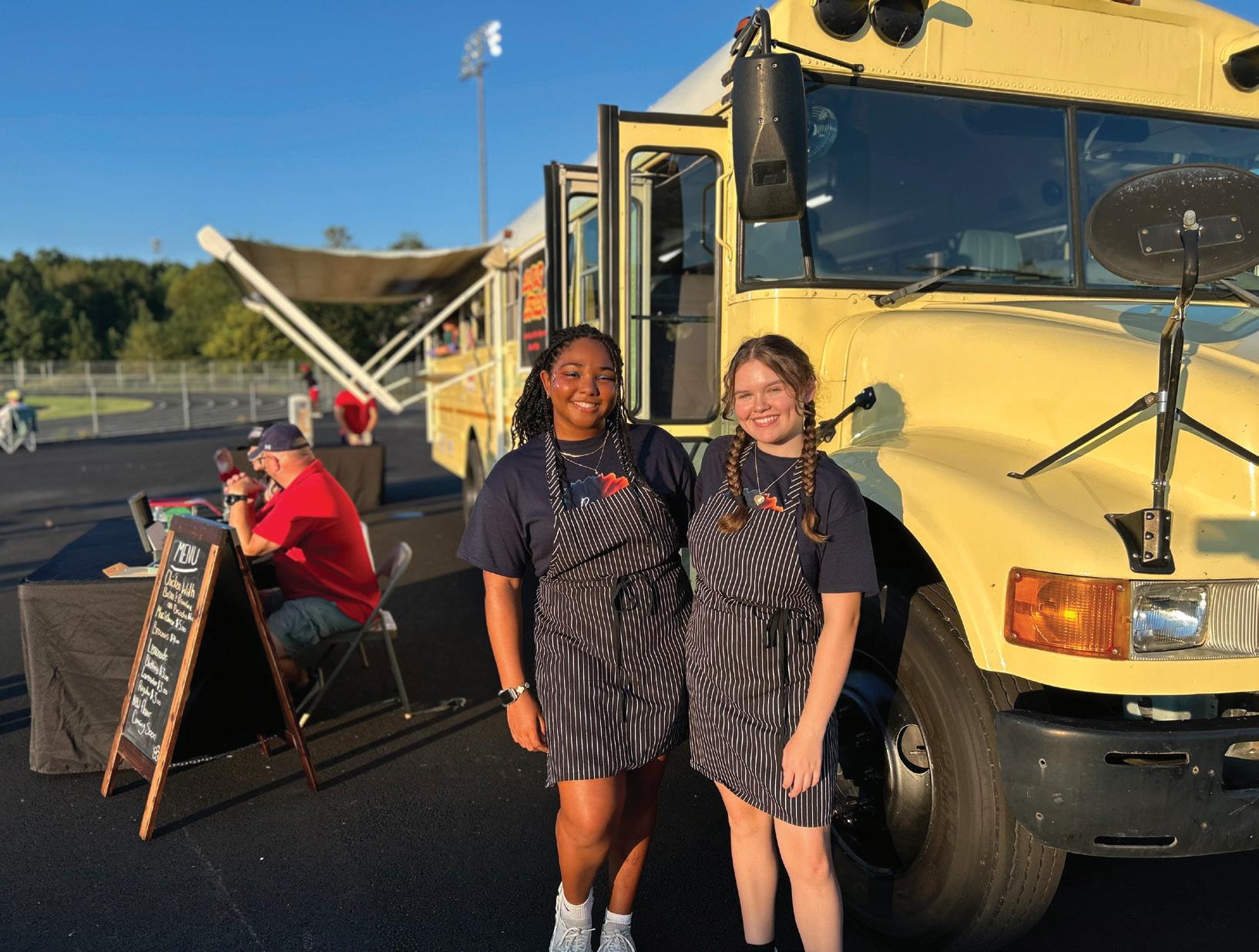
Free Press staff report
Friday night football at Goochland High School now comes with a side of cultural education, thanks to two students who turned a Spanish class assignment into a thriving food business.
Alexis Phillips and Addison Bryce launched Dawg Treats at the start of last year’s football season, selling globally inspired dishes from a retrofitted bus parked near the school’s flagpole. The student-run venture has returned for its second season, drawing crowds eager to sample traditional game-day fare as well as ethnic specialties.
The idea originated during Phillips’ sophomore year, when she prepared a Spanish dish for extra credit.
“After being given that assignment, I remembered that so many months highlight different cultures, like Hispanic Heritage Month and Black History Month,” Phillips said. “Creating Dawg Treats has given me the chance to spread awareness of other featured cultures. My goal is to one day run a fine dining restaurant of my own.”
Phillips and Bryce opened their first season
last fall. This year’s menu has expanded to feature chicken sandwiches, mac and cheese, brownies and flavored lemonades. Future offerings will include calzones, pierogies, beef tacos, chicken empanadas, tres leches cake and tiramisu. The pair is also planning a whoopie pie stand.
The food bus operates from gate opening through the third quarter of home games, with items priced between $3 and $10. All proceeds support the school’s culinary program, funding field trips, classroom activities and hands-on learning opportunities for students.
“When we started Dawg Treats, we knew we wanted to use the food bus and we wanted to find a way to use our culinary skills outside of the classroom,” Bryce said. “It’s been exciting to see people enjoy our food while also learning about different cultures.”
William Erlenbach, a chef and the school’s culinary teacher, praised the students’ entrepreneurial spirit.
“Addison and Alexis have shown tremendous initiative and leadership with Dawg Treats,” Erlenbach said. “They’ve created a unique experience for our community while also supporting the growth of our culinary program.”




The burying ground looks like an abandoned lot.
Holding the remains of upward of 22,000 enslaved and free people of color, the Shockoe Hill African Burying Ground, established in 1816, sits amid highways and surface roads. Above the expanse of unmarked graves loom a deserted auto shop, a power substation and a massive billboard. The bare ground of the cemetery is strewn with weeds. In contrast, across the way sits Shockoe Hill Cemetery. Established in 1822, it remains a peaceful cemetery with grass, large trees and bright marble headstones. This cemetery was created for white Christians.
acts of violence. As historian Ryan K. Smith writes, Shockoe “was not, as some would say, abandoned — it was actively destroyed.”
African burying grounds found and lost

I am an archaeologist who studies how the past shapes public life. Several years ago, I wrote with colleagues about the legacies of stolen human remains of African Americans in museums. During this time, I learned more about how African Americans often had to bury their dead in unsanctioned spaces that received little protection.
As I dug into this history, what struck me most was that the different treatment of African Americans in death paralleled their long mistreatment in life. Places like Shockoe have not been accidentally forgotten.
Although its purpose has endured and graves survive, Shockoe Hill African Burying Ground, the largest burial ground for enslaved and free people of color in the United States, has witnessed deliberate
The issue of protecting Black cemeteries first came to popular attention in 1991, when the African Burial Ground in downtown New York City was rediscovered and nearly obliterated by a construction project. It was preserved only through the efforts of African
Chip Colwell
American leaders and scientists.
In recent years, similar threats to Black cemeteries and questions about preservation have been reported at the Whitney Plantation in Louisiana, the Morningstar Tabernacle No. 88 in Maryland and a rediscovered graveyard in Florida, among many others.
Like these other cemeteries, the Shockoe Hill African Burying Ground has long faced constant perils, from grave robbing to construction projects.
Lenora McQueen, whose ancestor Kitty Cary was buried there in 1857, has been leading the effort to protect the cemetery. McQueen’s work — like the efforts needed at any disregarded Black cemetery in the country — has involved collaborating with city officials to purchase part of the site, establishing a marker and mural, and assembling a team to earn the burying ground recognition on the National Register of Historic Places.
Smith has detailed how, ever since Richmond’s founding in the 1730s, people of European
and African descent in the city lived divided lives. By the early 1800s, officials formalized different cemeteries for Richmond’s ethnic and racial communities.
A 1-acre cemetery for free Black people and another for enslaved people were situated near the city poorhouse and gunpowder depot. Yet these grounds were hallowed to the African American community. Burial rituals included long processions, biblical-inflected homilies, spirituals and public displays of grief.
However, the violations of these graves were easy enough. The cemetery was neither fenced nor formally tended. In the 1830s, medical schools began robbing the burying ground for cadavers. At the close of the Civil War, retreating Confederates exploded the gunpowder magazine, reportedly destroying a section of the cemetery.
City officials formally closed the cemetery in 1879, and systematic destruction began, despite constant objections from Black residents. Road and construction projects cut through the burial grounds. An African American editor at the time denounced the “people who profited by the desecration of the burial ground … when graves were dug into, bones scattered, coffins exposed and the hearts of the surviving families made to bleed by the desecration of the remains of their loved ones.”
In the years that followed, a railroad track and an elevated highway were built on portions of the cemetery. In 1960, Richmond city officials sold a portion of the burying ground to Shell, and a gas station was built atop the remains of hu-
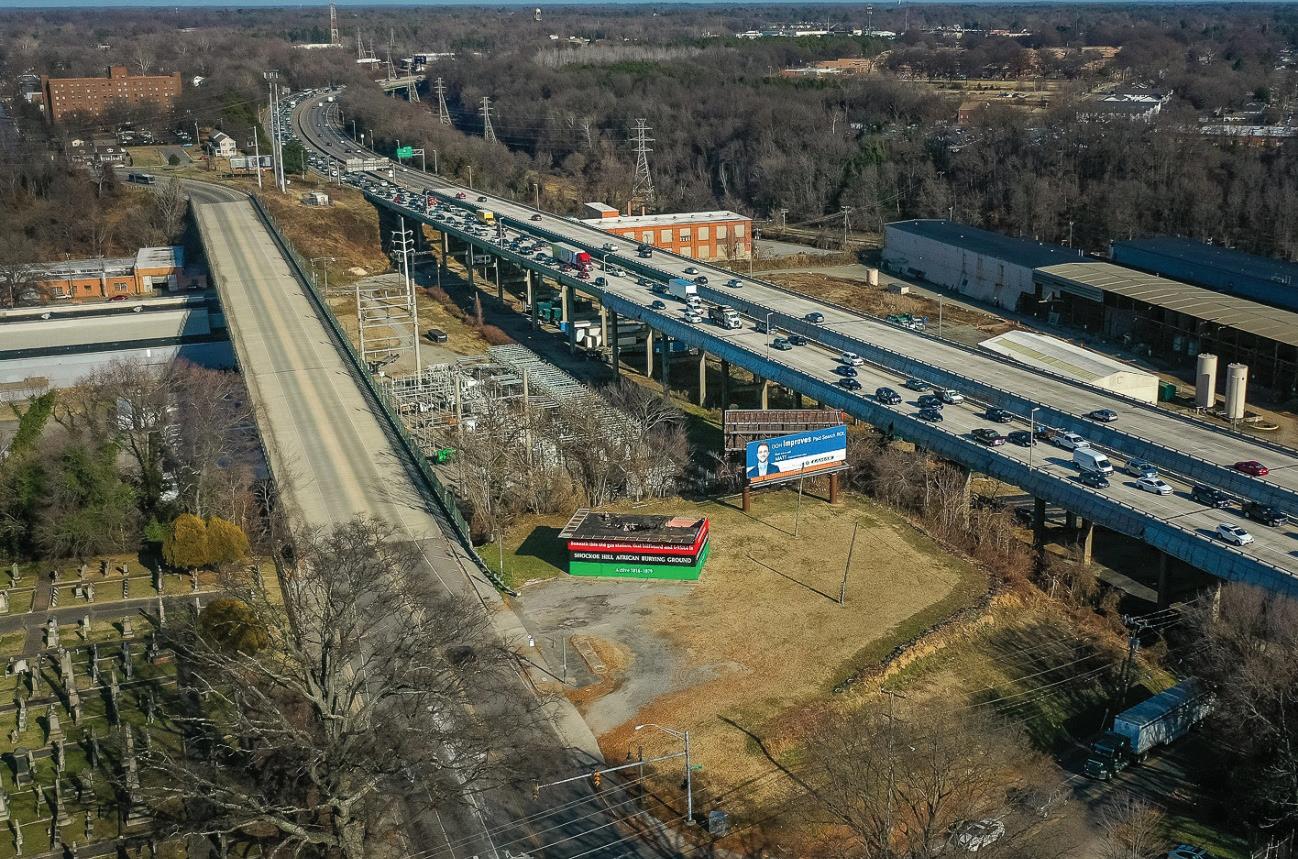
Struggle to preserve Shockoe
In 2011, the Virginia Department of Historic Resources conducted a survey to determine the eligibility of the deserted auto shop for the National Register of Historic Places. It did not consider the history of the Shockoe Hill African Burying Ground beneath and around the building as part of the site’s evaluation.
Six years later, McQueen learned that her ancestor was interred at the burying ground. Horrified by the cemetery’s state of disarray, she became its leading advocate. Eventually, McQueen put together a team of scholars and preservationists to pursue their own study of the site’s eligibility for the National Register. They found the cultural landscape — the traces of human activity that give a place
its history and meaning — to be highly significant.
Additionally, the site’s history of destruction was a vital record of the unequal treatment shown toward Black burying grounds in the United States. The team formally pursued its own nomination to the National Register.
In 2022, the Shockoe Hill Burying Ground Historic District was successfully listed on the NRHP.
Even with this success, threats continue. Being listed on the National Register provides prestige, grant opportunities and reviews for federal projects, but few guaranteed protections. In the same year Shockoe was listed, utility lines were installed in the area without consulting heritage officials.
A high-speed rail project, if implemented as planned, could violate the cemetery’s historical
landscape. Designs for a memorial, while well-intentioned, might further harm the site and threaten its National Register status if it is not treated as a cemetery with graves. What the Shockoe Hill African Burying Ground reveals is the need for the nation to provide dignity to all its citizens, in life and in death. A cemetery does not need famous inhabitants or marble tombstones to be significant.
As McQueen has said of her ancestor’s eternal resting ground, “Burial spaces are sacred.”
The writer is an associate research professor of anthropology at the University of Colorado Denver. Disclosure: Colwell has sat in on meetings about the burial ground’s preservation as a heritage expert. This story originally appeared on TheConversation.com.
By Lyndon German VPM
Jody Lynn Allen has always been fascinated by the striking gaps in history, and she was especially charmed by the stories she’s heard in her hometown Ashland — hidden histories that lingered just below the surface of Hanover County.
In her latest book, “Roses in December: Black Life in Hanover County from Civil War to Civil Rights,” Allen chronicles a century of Black experiences from Reconstruction’s beginning in 1865 through the formal end of desegregation in 1964. The nonfiction work paints a portrait of a community that survived, resisted and built institutions of its own despite systemic barriers.
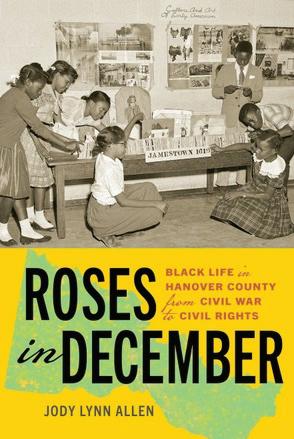
Allen refers to this period historians dub as “the era of disfranchisement,” a term that captures an ongoing struggle for equality and recognition. Throughout her research, she said she discovered her “joy of finding what others had forgotten.”
“There were so many people who didn’t think I would find a lot of information, but I’m glad I decided to write about Hanover,” Allen said. “There are a lot of people who’ve been here all of their lives and, when you interview them, you’d be surprised about the stories that come out.” Allen, a Hampton native and assistant professor of history at the College of William & Mary, focuses her research on the lives of Black Virginians from the Civil War through the Civil Rights Movement. However, her path to becoming a historian wasn’t straightforward.
“History has always been what interests me. I was the kid who was busy talking to my grandparents while everyone else was outside,” said Allen, who holds bachelor’s and master’s degrees in criminal justice. “I never worked a day in the criminal justice field, but it’s given me a better understanding of the history of Black imprisonment in this country.”
That curiosity became the foundation for “Roses in December.” The project, which began as her doctoral dissertation in 2007, soon evolved into a mission to fill in absences in the historical record.
Through years of research — sorting through newspaper clippings, unprocessed letters and hours of oral histories — Allen pieced together a mosaic of stories long overlooked within her home county. What she found was a community defined not just by hardship, but by determination and cultural strength.
“The books that I found in Hanover mainly were about plantations, the flowers, the architecture. They don’t talk about the enslaved because that’s not something people want to talk about,” Allen said. “But when you look, and you don’t have to look that deeply, you find it. It’s there — you have to take the time to look.”
Many of her interviews began with residents who doubted they had anything worth sharing — but for Allen, the process of uncovering Hanover’s Black history has been both an aca-
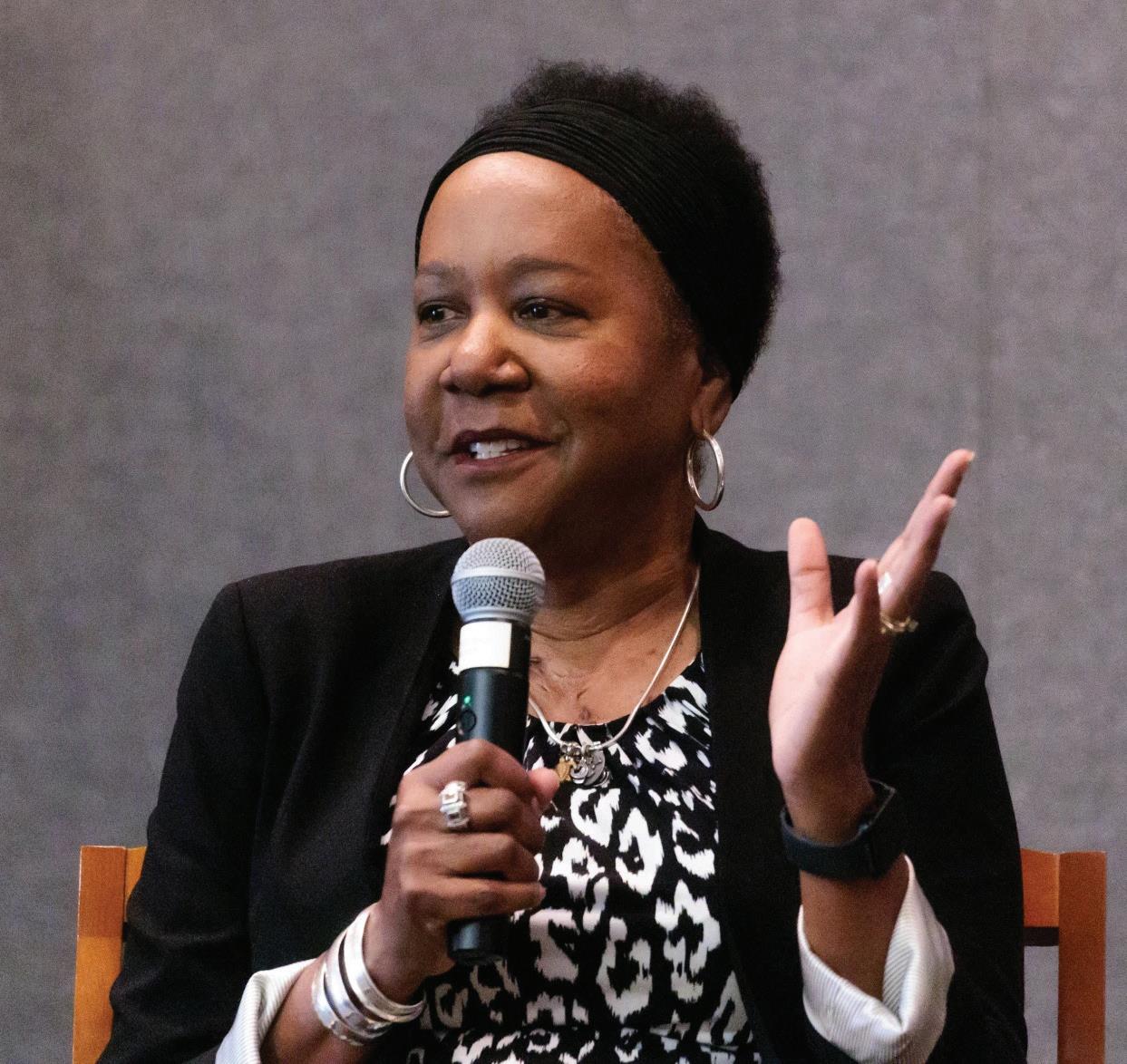
demic and personal journey — one that continues to inform her teaching and writing.
Among the stories featured in “Roses in December” are educators who fought to establish Black schools and campuses during Massive Resistance. That’s when local boards in Virginia closed public schools rather than follow desegregation mandates that followed the U.S. Supreme Court’s landmark 1954 decision in Brown v. Board of Education.
Other stories follow places such as Berkleytown, the community founded outside Ashland’s boundaries, or reveal through old correspondence George Washington Carver’s unreported visit to Hanover. There are also smaller tales — like that of Peter Storrs, a shoemaker on a path to purchase his freedom from his enslaver. Each story, Allen said, adds a layer to Hanover’s larger cultural narrative and highlights the importance of memory — and how easily history can fade when it isn’t written down or passed on. If not for that process, Allen said she’d still not have a name for her book in the first place.
“I remember speaking to a woman after an event in Ashland and she told me a saying her mother had told her: ‘God gave us memory so that we might have roses in December,’” Allen said. “I knew right then and there that what I was doing was to remind people of the struggles they overcame to get where they are today.”
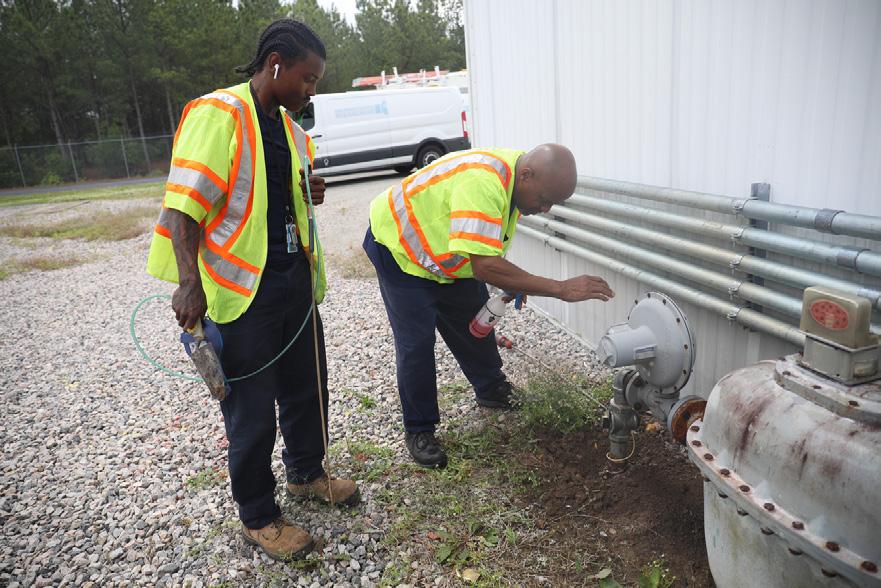
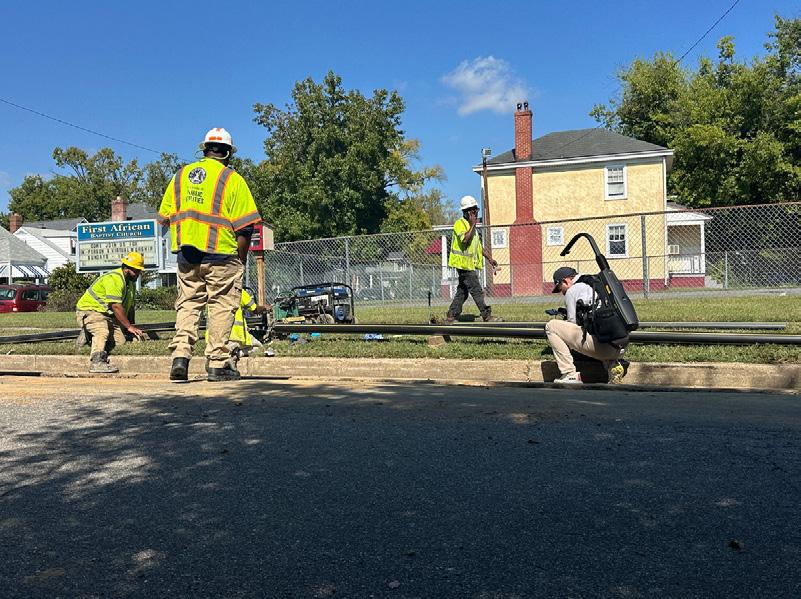
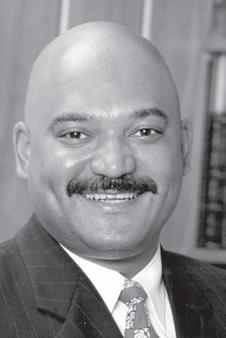

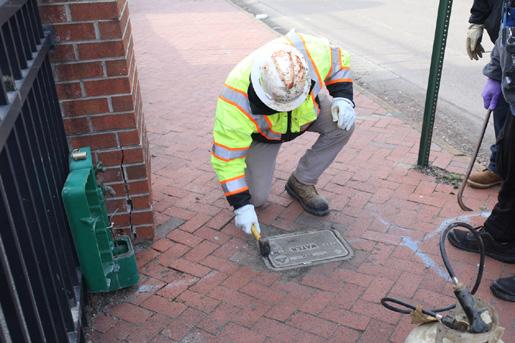

By Ben Paviour
A U.S. district court judge has blocked enforcement of punitive measures against a pro-Palestinian nonprofit under investigation by Attorney General Jason Miyares.
In an Oct. 7 oral ruling and Oct. 17 written opinion, Judge Leonie Brinkema of the U.S. District Court for the Eastern District of Virginia said Miyares’ push to obtain donor lists from American Muslims for Palestine is overly broad and likely violates the First Amendment’s protection of freedom of association.
The temporary injunction and restraining order block Richmond Circuit Court Judge Devika Davis’ Sept. 29 ruling holding the charity in contempt for not handing over its donor lists. Davis had ordered a $1,000 daily fine until AMP turned over the documents to the attorney general’s office.
Miyares vowed to appeal.
“Charitable organizations operating in Virginia have an obligation to follow the law,” Miyares’ spokesperson Shaun Kenney said in a statement Monday.
Brinkema’s ruling comes in the midst of a tight election between Miyares and Democrat Jay Jones. It’s not clear if Jones, whose campaign was upended by the revelation of incendiary text messages from 2022, would continue to prosecute the case if he wins. His spokesperson did not respond to a request for comment Monday.
The investigation
Miyares publicly announced his investigation into the group on Oct. 29, 2023, three weeks after Hamas militants attacked Israel, killing nearly 1,200 people and sparking an ongoing conflict that has left over 70,000 Palestinians dead and unleashed a humanitarian crisis.
In legal filings, news releases and an appearance on Fox Business, Miyares accused AMP of failing to register with the Virginia Department of Agriculture and Consumer Services. He also claimed funds raised by the group may have been funneled to “terrorist organizations,” without providing evidence to back up the claim.
In the Fox appearance, Miyares appeared to connect the group to Hamas.
“Hamas is a known terrorist organization, designated by the European Union and our United States government,” Miyares said. “So our job is to get to the truth.”
On its website, AMP says it aims to advance “the movement for justice in Palestine by educating the American public about Palestine.” The
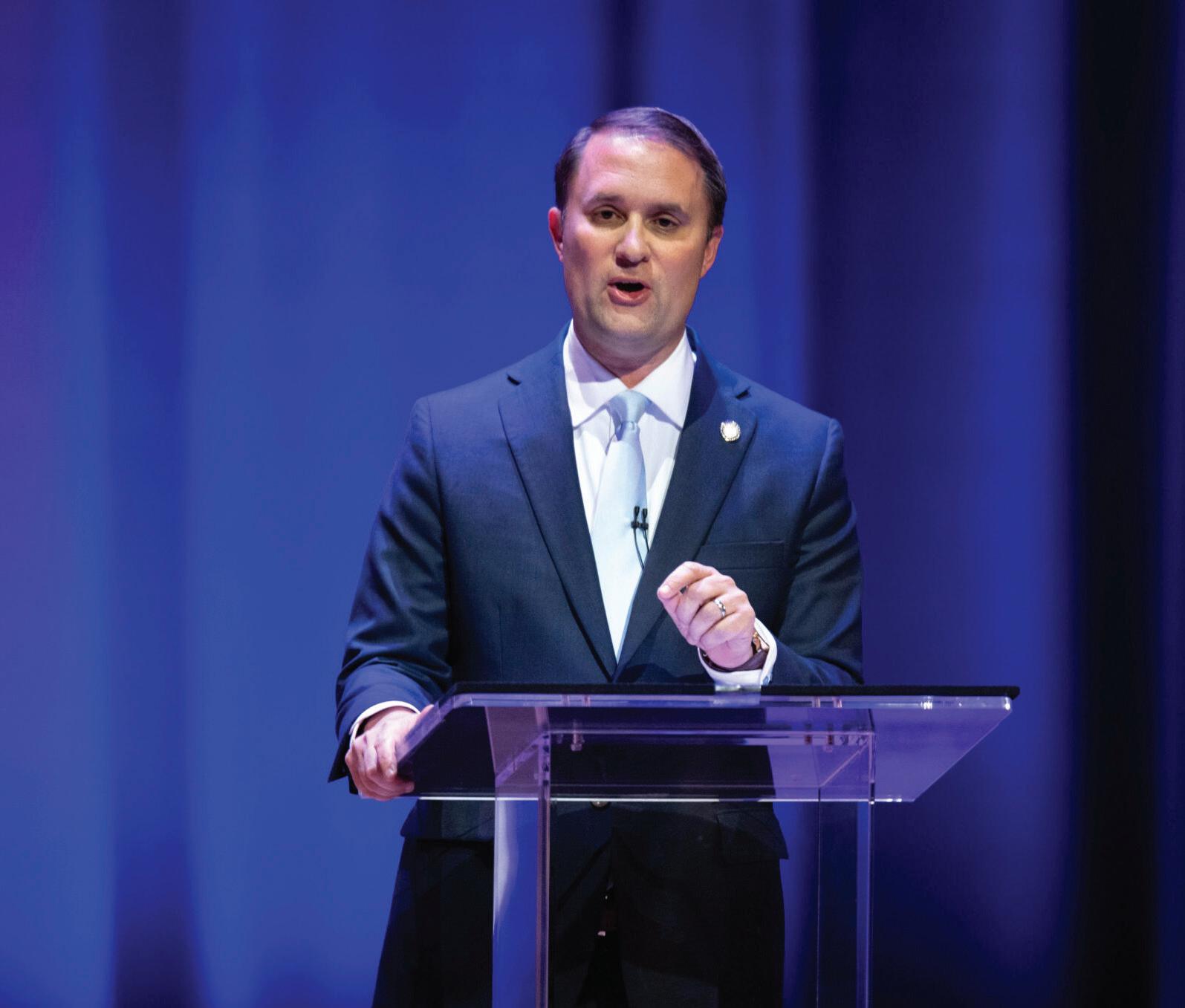
group described Miyares’ initial accusations as a “defamatory and dangerous smear” and accused him of “attempting to score political points with hateful extremists.”
Using a legal tool called a civil investigative demand, the attorney general’s office sought a range of documents, including rosters of the group’s employees, meeting minutes, banking documents and lists of the group’s donors and members of its email lists.
Legal representatives for American Muslims for Palestine acknowledged they had overlooked Virginia’s registration requirements and registered with the state in November 2023, turning over some of the documents demanded by Miyares’ office the following month.
But the fight over the donor lists has proved to be contentious. In July, the Virginia Court of Appeals rejected AMP’s petition to prevent immediate enforcement of Miyares’ demand, though it has yet to issue a ruling in the case
and did not elaborate on its reasoning. In legal filings in September, the attorney general’s office accused AMP of embarking on a “meritless and lengthy campaign to evade, delay and obstruct” the OAG’s investigation and asked Judge Davis to sanction the group.
AMP filed its federal petition Sept. 26 asking the court to block enforcement of parts of Miyares’ demand until questions of its constitutionality were fully resolved. Brinkema held a hearing Oct. 3 and made a ruling from the bench the same day granting the group’s request. She also ordered AMP to post an $8,000 bond.
In her opinion, Brinkema argued that without the injunction, AMP would be forced to either pay hefty fines or turn over sensitive documents.
“Given AMP’s likelihood of succeeding on the merits of its free association claim, choosing this path would likely result in irreparable injury because once the attorney general has access to the donor lists, AMP cannot un-ring
the bell, even if an appellate court later found that the demand for AMP’s donor lists was constitutionally infirm,” Brinkema said.
Christina Jump, AMP’s lead attorney on the case, said Miyares was attempting to force the group to hand over the documents before constitutional questions had been litigated — a move she said sent a chilling message to nonprofits and businesses.
“It’s the top legal officer for Virginia trying to sidestep the law,” Jump said. Pro-Israel politics
Miyares has made his support for Israel an important pillar of his political brand.
The Republican traveled to Israel twice in 2023, meeting with Israeli President Isaac Herzog in a March visit and, in November, visiting sites of the Oct. 7 attack and speaking with survivors. The attorney general’s office encouraged local law enforcement to donate surplus gear to Israel, inviting the press to observe helmets, vests and protective plates being loaded into a truck outside his office. He also sent a letter to the state’s higher education leaders encouraging them to “promote public safety and ensure viewpoint diversity” amid student protests against the Israeli bombardment of the Gaza Strip. Miyares’ investigation against AMP comes as the group has faced at least five recent federal lawsuits that attempt to hold it liable for the actions of pro-Palestinian
“Plaintiffs fail to plausibly allege even prior knowledge of the Oct. 7, 2023, attack, much less intentional aid that substantially furthered the tort,” Alston wrote. This story originally appeared on VirginiaMercury.com.
Safety, you play a part!
Underground pipelines safely transport natural gas to homes and businesses throughout the country. Virginia Natural Gas operates, secures and maintains the pipelines in our service territories. We adhere to state and federal pipeline safety regulations, perform extensive quality control checks, educate the public on how to recognize and prevent natural gas leaks, and work closely with officials to develop emergency response plans.
You can help prevent natural gas pipeline incidents!
Excavation work, including digging or plowing around a home or business, is the most common cause of natural gas emergencies. Before digging, state law requires you contact 811 to have your utility lines professionally marked for free. After calling, you must wait the required amount of time before digging, so that underground utility lines can be located and marked.
Pipeline Security

Pipeline Security depends on all of us. If you see any of the following related to pipeline facilities, please call 757.455.5326.
↗ Holes in fences or open gates
↗ Suspicious or illegally parked vehicles on property
↗ Persons on or near property taking pictures
↗ Drones above company properties
↗ Unattended bags or packages
↗ Suspicious equipment left in open areas or hidden, such as placed in buckets or cans
See something, say something.

Pipeline markers and right of way
A pipeline right of way is a defined piece of land where pipelines are installed above or below ground. They can be identified by a wide, cleared strip of land with pipeline markers. If a pipeline right of way is adjacent to your property, you have a responsibility to ensure no new installations, or physical structures are placed in the right of way These encroachments interfere with our ability to monitor and maintain safe pipelines, as required by federal and state safety regulations. If you have a question about activity which might affect the pipeline right of way, please contact Virginia Natural Gas at 1.866.229.3578.
Pipeline markers, like the one pictured, indicate the general area of the pipeline, but not its exact location or depth. A pipeline may not always be marked in all areas, so it is important to always “Call Before You Dig ” If you think there is a pipeline emergency, call us at 1.877.572.3342.
Information about transmission pipelines operating in your community can be accessed online at https://www.npms.phmsa.dot.gov, courtesy of the National Pipeline Mapping System (NPMS)
Pipeline integrity management is a process for assessing and mitigating pipeline risks to reduce the likelihood and consequences of incidents.
Our comprehensive plan that fully addresses these processes, especially for locations deemed high-consequence areas, is available at virginianaturalgas.com integritymanagementplan

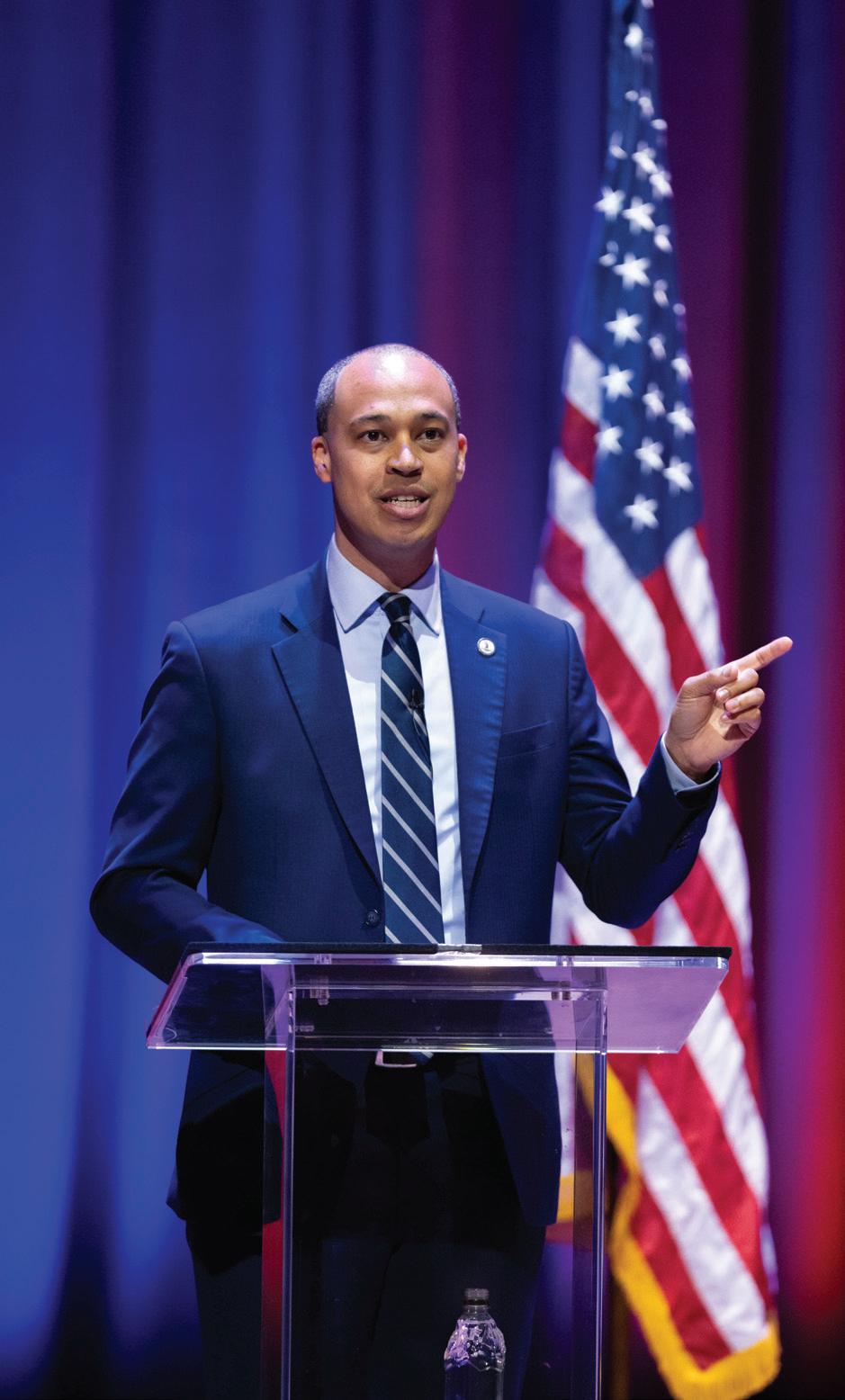
By now, you’ve probably heard about the texting troubles of Democratic attorney general candidate Jay Jones. The former member of the House of Delegates has apologized after violent text messages he sent in 2022 to a fellow lawmaker resurfaced. The messages, directed at then-House Speaker Todd Gilbert, were described by Jones as “inexcusable” and “shameful.”
We agree, and we hope this can be a learning experience for him and Virginia voters, as there’s more than one lesson to be learned here.
Since Jones’ private remarks have become public, we’ve seen a predictable level of outrage from his political opponents. The current attorney general, Jason Miyares, said his words are “the kind of darkness that disqualifies anyone from holding public office.” The current governor, Glenn A. Youngkin, called for his resignation. The current president called him an “animal” and suggested that his comments were grounds for imprisonment. Conservative political commentators have challenged and questioned supporters of Jones — How can they vote for him, considering the things he’s said?
That’s a question supporters of the president likely know the answer to, as they’ve probably been asked it before. They shrug, roll their eyes and focus on the bigger picture: He advances their agenda, fights for what they want, and the “missteps,” no matter how outrageous, don’t outweigh the outcomes they care about. In other words, political allies often weigh deeds over words when it suits them.
Democrats could take a hint here with Jones. Yes, the texts were awful. Yes, they were inexcusable. But Jones has owned them, apologized and made it clear they don’t reflect the way he does the work of a public official.
Politics is messy. People say dumb, hurtful and shocking things. What counts is whether they own it, whether they learn from it and whether they serve responsibly once they’re in office. Let Jones’ mistake be a warning, not an expulsion.
In the end, it’s about perspective. If Republicans can look past the worst of Trump’s rhetoric because he gets things done, Democrats can do the same with Jones. The question isn’t whether he’s perfect — no one is. The question is whether he’s capable, accountable and ready to serve Virginians.

Scientists warn coral reefs have passed a tipping point, threatening oceans and economies worldwide
My parents’ marriage was illegal in Maryland in 1966, so they moved west. By the time I was born in 1973, they had settled in Monterey County, California — the same year the last cannery on Cannery Row shut down. The Hovden Cannery closed its doors, marking the end of an era. Where it stood, the Monterey Bay Aquarium would later rise, a monument to what had been lost and what we hoped to restore. When I was 12, in 1985, I became a guide at that aquarium — the youngest in my class. Standing in a building literally constructed on cannery ruins, I told visitors about kelp forests, sea otters and the remarkable return of the sardines. Through the 1980s and 1990s, they came back. The ocean, given a chance to rest, proved resilient. As a kid who often felt out of place, the ocean was my refuge. I learned it can be a patient teacher. But the lesson it’s teaching now, according to leading scientists, is one humanity may never recover from. Worse, its impact will reach far beyond our coasts — first with rising seafood costs, then with far more serious consequences.
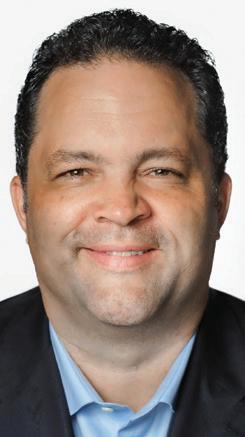
Last week, scientists announced the world has reached its first climate tipping point. Coral reefs — supporting a quarter of all marine life and nearly a billion people — are in widespread, irreversible collapse. Since 2023, more than 80% of the world’s reefs have suffered the worst mass
bleaching event ever recorded.
This is different from the sardines. When sardine populations crashed in the 1940s and 1950s, the fish survived elsewhere. When fishing stopped, they returned. Recovery took decades, but it was possible. Coral reefs are the foundation. When they die, the habitat disappears. The three-dimensional structures that provide shelter, feeding grounds and nurseries collapse into rubble. Unlike sardines, reefs take centuries or even millennia to rebuild — if they can at all under continued warming. Scientists warn we’ve crossed a threshold. Unless global temperatures drop to just 1 degree Celsius above preindustrial levels — not just stop rising but actually decrease — these ecosystems will be lost. Small refuges may survive, but vast, thriving reefs will vanish on any timeline that matters to
our children. That’s just the first domino.
The same report warns other catastrophic tipping points are near — the Amazon rainforest, Atlantic ocean currents that regulate global weather, and the ice sheets controlling sea levels. Each could trigger others in a cascade of irreversible changes.
These aren’t distant problems.
The Atlantic Meridional Overturning Circulation, which includes the Gulf Stream, could collapse within our lifetimes. If it does, global food production could face devastation.
Nearly 60% of land suitable for wheat and corn would become unusable, threatening agriculture, spiking prices and fueling hunger worldwide.
These changes are not for our grandchildren — they’re happening within decades.
Still, we have agency. Scientists say there are positive tipping points, too. Solar power is now cheaper than coal, and electric vehicles are rapidly expanding.
Next month, world leaders meet in Brazil for COP30, the annual climate summit where countries pledge to cut pollution. For farmers, fishers and families everywhere, it matters. If nations commit to rapidly ending coal, oil and gas use, we can slow the damage. If not, we face soil that won’t grow crops, water that won’t arrive when
Pentagon policy sparks media walkout, public outcry
Defense Secretary Pete Hegseth has done it again.
As his latest outrage touched off an unprecedented revolt by almost every media outlet covering the Pentagon, I once again was reminded of my own Army days when we called it the “five-sid ed funhouse,” although not within earshot of the “brass,” our superior of ficers.
The head quarters of America’s military didn’t sound like much fun as dozens of reporters on the military beat turned in their press passes after major news outlets and some media watchdog groups refused to sign Hegseth’s restrictive new press policy regarding coverage of military affairs.
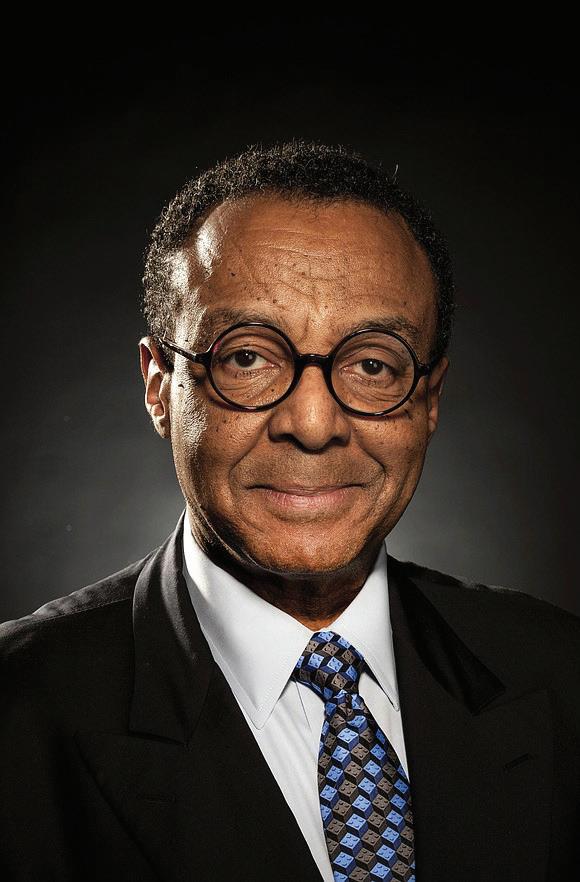
to honor the American families who have entrusted their sons and daughters to serve in it, or the taxpayers responsible for giving the department hundreds of billions of dollars a year,” the statement added.
Understandably, I agree. Yet, as someone who has become accustomed to Hegseth’s past excesses,
I sort of saw it coming.
Hegseth signaled as much last month when he addressed a captive audience of hundreds of generals, admirals and other senior military officers flown in from around the globe, largely to dress them down about the need to tighten up on such questionably urgent issues as grooming and fitness standards. No more “beardos” or “fat generals,“ among others Hegseth would rather not see, despite criticism from civil liberties and religious groups.
I could see trouble coming last month after Hegseth’s press office unveiled new rules to sharply restrict reporting, for which military reporters need press credentials to allow physical access to the Pentagon complex.
The most objectionable of the rules forbids reporters from obtaining or using any unauthorized material, even if it is not classified, without permission. Media outlets called that a violation of First Amendment rights. Almost all refused to sign.
The new policies “appear designed to stifle a free press” and “further isolate reporters” who are trying to do their jobs, the Pentagon Press Association, which represents Pentagon beat reporters, said Wednesday in its first prepared statement.
“Limiting the media’s ability to report on the U.S. military fails
Yet, at the same time, it is no small matter that Adm. Alvin Holsey, head of the U.S. Southern Command, which oversees all operations in Central and South America, announced he was stepping down.
This is happening while the Pentagon has rapidly built up some 10,000 forces in the region to fight what it terms “narcoterrorism.” On Sept. 2, after the first of several deadly airstrikes against boats in the Caribbean Sea, Trump posted on his Truth Social platform: “Earlier this morning, on my Orders, US Military Forces conducted a kinetic strike against positively identified Tren de Aragua Narcoterrorists in the SOUTHCOM area of responsibility.” Eleven people were killed in that airstrike, and at least 21 more have been killed in subsequent strikes.
It was unclear why Holsey is suddenly departing, as the New York Times put it, “less than a year into what is typically a three-year job, and in the midst of the biggest operation in his 37-year career.”
But for what it’s worth, Holsey had raised concerns about the mission and the attacks on the alleged drug boats, according to The New York Times, citing anonymous U.S. officials. With a free and unfettered press, it’s likely we will learn more about the story. And, frankly, there is a lot more we need to know.
In a statement on social media, Hegseth made no mention of any friction with his four-star commander. “On behalf of the Department of War,” he said, using the name of the department he now prefers, even if Congress has yet to agree, “we extend our deepest gratitude to Admiral Alvin Holsey for his more than 37 years of distinguished service to our nation as he plans to retire at year’s end.”
In other words, despite the Trump administration’s wish to impose new press restrictions, we Americans will continue to depend on unnamed sources to inform us about what our government is doing with our tax money and with the lives of the people serving in our military. Sometimes unofficial channels are the only way vital information can get through to the public. That’s why an independent free press matters, in war or peace. Citizens deserve the chance to judge which news sources are credible. And journalists deserve the freedom to gather information in good faith to inform their audiences. To have these rights taken away is the real peril to our nation.
The writer is a columnist for the Chicago Tribune.
needed and weather that destroys entire harvests.
The remaining healthy coral pockets must be protected from pollution and overfishing. And we need to remove carbon from the air, not just stop adding more — like pumping water from a flooded basement.
As that 12-year-old aquarium guide, I taught visitors about resilience and recovery. Sardines taught me the ocean can heal when we give it a chance. But coral reefs teach a harder lesson: Some thresholds, once crossed, can’t be undone.
The ocean has been a patient teacher. But this lesson — about irreversible tipping points and cascading collapse — is one we cannot afford to fail. The consequences won’t stay in the ocean. They’re coming for all of us. The writer is a professor of practice at the University of Pennsylvania.
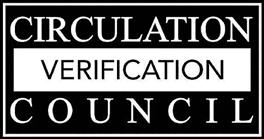



Most people are surprised to learn government shutdowns, and the ensuing finger-pointing, haven’t always been a mainstay of American politics. Shutdowns are hard on ordinary Americans — especially in states such as Virginia, which ranks fifth on a recent WalletHub list of most impacted states. But to understand how we got to this point, we must first examine who benefits from shutdowns.
its, and promote privatization. The current shutdown paused antitrust cases that could break up Amazon and Apple, for instance.
Unsurprisingly, the ultrawealthy beneficiaries of shutdown chaos are often major donors to far-right GOP politicians and outside organizations lobbying for that chaos.
they might lose their nominal objective — like cuts to Medicare or repealing the ACA. But by drawing attention away from their attacks on good government, they win by losing.

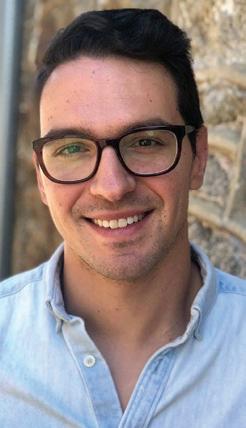
For decades, conservatives in Congress have used one manufactured budget crisis after another to drive a narrative that the government doesn’t work — while quietly enriching their billionaire backers. The most recent example came just before August recess, when House Republicans advanced a little-noticed government funding bill to gut the IRS base budget by $2.8 billion. Translation? Roll out the red carpet for tax cheats with ninefigure bank accounts.
The numbers don’t lie. In 1990, before shutdown politics became normalized, America had 66 billionaires controlling $240 billion. Today, roughly 700 billionaires hoard over $7 trillion — a 28-fold explosion in wealth. As billionaire wealth exploded, the total share of wealth controlled by the bottom half of the country shrank.
This wasn’t accidental. It happened in part because government dysfunction means big paydays for America’s ultrawealthy, who take advantage of shutdowns and spending cuts to evade taxes, skirt consumer protections to maximize prof-
For example, billionaires Jeffrey Yass and Robert Mercer are two of the biggest funders of Club for Growth, a key hard-right group behind the
GOP-led 2013 shutdown over the Affordable Care Act (ACA).
The ACA wasn’t just health care reform — it also raised billions of dollars in new taxes from ultra-wealthy households.
Shutting down the government over its possible repeal would have been a no-brainer for Yass and Mercer, both of whom were also engaged in legally questionable tax-avoidance schemes at the time.
In the Club for Growth’s view, repealing the ACA and its taxes on the ultra-rich was a win. A shutdown that froze IRS audits and enforcement was a win. Allowing the government to reopen only after Democrats conceded to deep spending cuts was a win. Dysfunction that “proved” the inability of government to function efficiently was a win. The only losers would be the American people.
While the demands in shutdowns vary, the crisis often only resolves with Democrats accepting GOP spending cuts that weaken regulatory capacity and benefit wealthy industries at the expense of everyday Americans. Conservatives have learned
While the March 2025 partisan funding bill avoided a shutdown, it slashed $13 billion from domestic priorities, gutted IRS enforcement funding to target wealthy tax cheats, and hobbled regulatory agencies that safeguard working families — while simultaneously empowering the Trump administration (and billionaire allies like Elon Musk’s DOGE) with broad discretion to reallocate remaining funds at will.
Working people are frustrated by this toxic game. We must tax billionaires to break up the dangerous concentration of wealth that allows them to hold our democracy and economy hostage.
Taxing billionaires is a consensus issue, with support rising sharply as the consequences of unchecked, extreme wealth play out. Recent Impact Research polling found broad support for raising taxes on billionaires among likely voters in 2026 battleground congressional districts and states. And a recent Morning Consult poll found that even 70% of Republicans believe “the wealthiest Americans should pay higher taxes” — up from 62% just six years ago.
Until Congress addresses the power imbalance allowing billionaires to benefit from — and drive — government dysfunction, Americans will remain trapped in a game of shutdown chicken. It’s time to tax billionaires and return the power to the people.
The writer is the Campaign Director for Tax the Greedy Billionaires.

The Panthers overwhelmed the Lions with 555 yards of total offense, striking early and often before a crowd of more than 9,000 fans under sunny skies.
Senior running back Curtis Allen powered the ground attack with 208 yards and three touchdowns on 24 carries, including a 48-yard score in
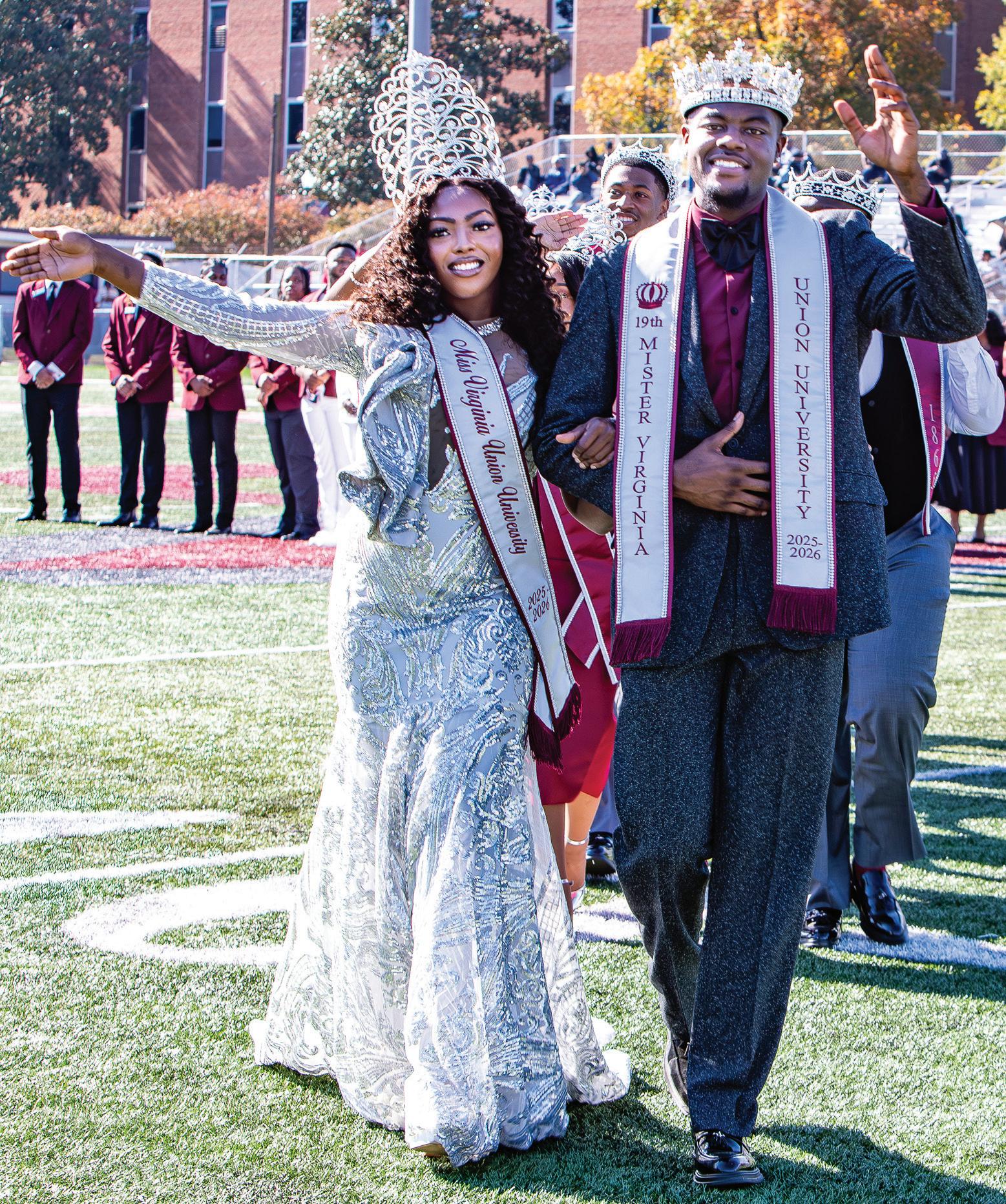

the third quarter. Quarterback RJ Rosales added 247 passing yards and three touchdowns, along with two rushing scores in a standout dual-threat performance.
Keon Davis caught five passes for 79 yards and two touchdowns, while Zyaire Tart added a 43-yard touchdown reception. Kicker Brady Myers connected on nine extra points and a 36-yard field goal.
Defensively, VUU’s secondary shined with three interceptions — two by Jymere Melendez — and a fumble recovery that stifled Lincoln’s offense. The Panthers jumped out to a 14-0 first-quarter lead and poured in 28 points in the third quarter to seal the blowout.
“I was pleased with today’s victory,” Head Coach Alvin Parker said. “There were flashes of greatness on offense, defense and special teams. This group loves to work hard, and it shows in their performance on Saturdays. I’m happy we were able to take care of our portion of Homecoming.”
The win keeps Virginia Union tied atop the CIAA standings with Fayetteville State as the Panthers continue their push toward postseason play.
VUU will host Bowie State at 1 p.m. Saturday, Oct. 25 at Hovey Field.

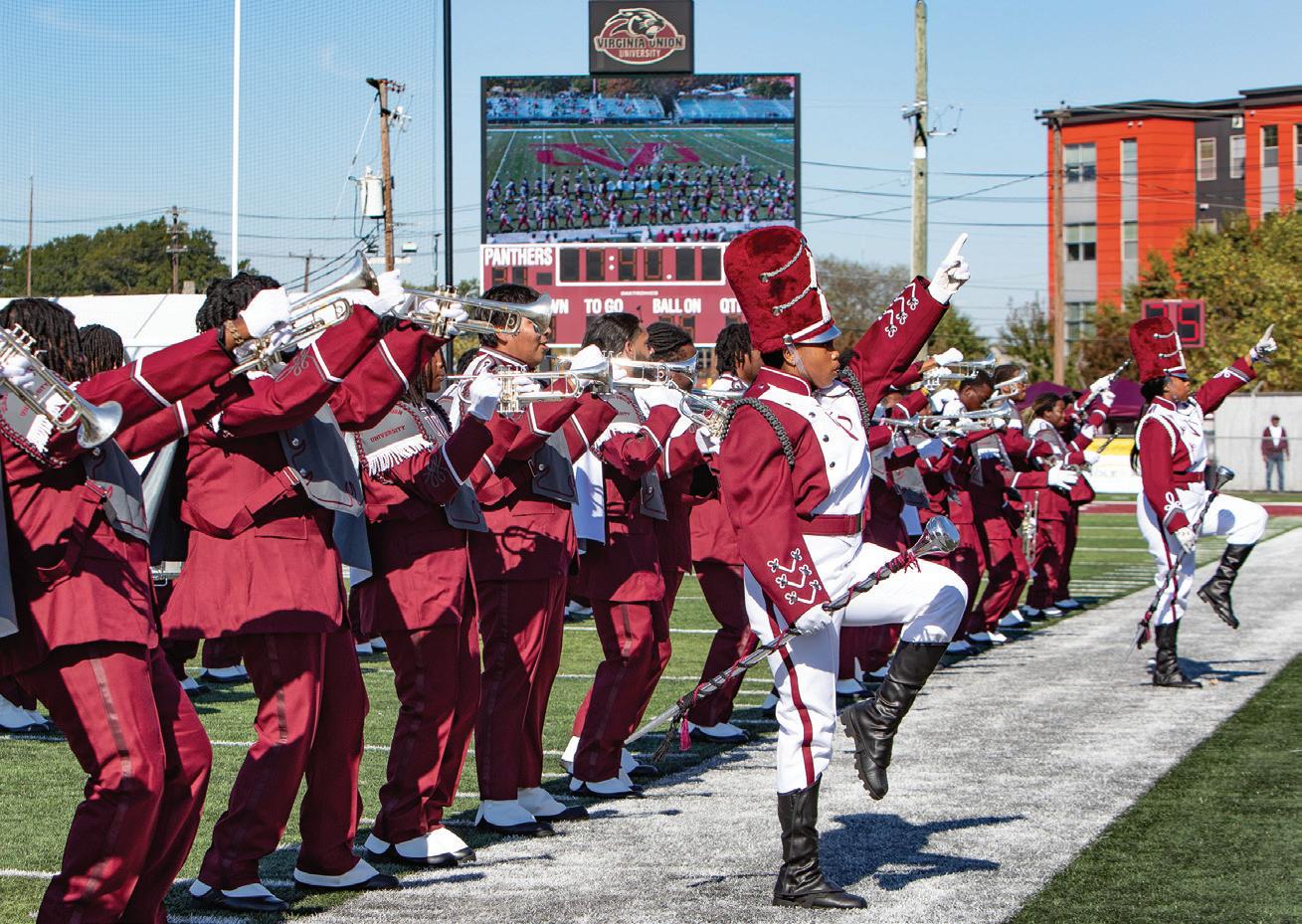
Free Press staff report
Virginia State University alumnus and former Major League Baseball player Alonzo “Al” Bumbry will serve as marshal and guest of honor for this year’s Homecoming Parade.
Bumbry, a 1969 VSU graduate, played 14 seasons in the majors, primarily with the Baltimore Orioles. He won the 1973 American League Rookie of the Year Award, was selected to the 1980 All-Star Team and helped the Orioles capture the 1983 World Series. His 252 career stolen bases rank fourth in Orioles history.
A Fredericksburg native, Bumbry initially attended VSU on a basketball scholarship but joined the baseball team in his final year after the program was reinstated. He served as team captain and was named the team’s Most Outstanding Player.
A member of the university’s ROTC program, Bumbry completed two years of military service after graduation, including a year in Vietnam, and was awarded the Bronze Star. He was inducted into the Orioles Hall of Fame in 1987 and is also a member of the Virginia Sports Hall of Fame and the Central Intercollegiate Athletic Association Hall of Fame. After his playing career, Bumbry coached for the Boston Red Sox, Baltimore Orioles and Cleveland Indians.
VSU will hold its Homecoming Parade on Saturday, Oct. 25, at 8:30 a.m. This year features a new route to improve traffic flow for attendees arriving for the football game. Details are available at vsu.edu

Korn Ferry Tour picks Glen Allen for 2026 championship
Free Press staff report
Professional golf will remain in the Richmond area with the Korn Ferry Tour Championship moving to The Federal Club for the 2026 season finale, Oct. 5-11. The event will feature the PGA TOUR Card Ceremony, where the top 20 players on the Korn Ferry Tour Points List earn PGA TOUR status for the following season.
The announcement came Monday during a news conference after the final Dominion Energy Charity Classic, a PGA TOUR Champions event that concluded Oct. 19 at The Country Club of Virginia’s James River Course. The Charity Classic, held in Richmond since 2016, raised more than $14 million for local charities.
“Korn Ferry Tour Championship presented by Virginia’s Richmond Region will be moving here, beginning next year,” said Korn Ferry Tour President Alex Baldwin. “This community has been an incredible host to a PGA TOUR Champions event for a decade, and we’re looking forward to building on the foundation they’ve established.”
The Federal Club, designed by Arnold Palmer, is a par-72 layout stretching more than 7,000 yards with bentgrass greens and fairways and bluegrass/fescue roughs. Henrico County officials and Richmond Region Tourism worked with the Virginia Tourism Corporation to secure the event and strengthen sports tourism in the area.
“The Federal Club will provide an exceptional stage in 2026,” said Henrico Board of Supervisors Chair Daniel J. Schmitt. “Hosting the season-ending Korn Ferry Tour Championship highlights our region’s ability to deliver world-class sporting events that drive tourism and economic growth.”
Steve Schoenfeld, executive director of the Dominion Energy Charity Classic, will lead operations for the new tournament.
“The support the community has demonstrated over the past 10 years has been nothing short of spectacular,” he said.
All four rounds of the tournament and the PGA TOUR Card Ceremony will air live on the Golf Channel.
Free Press staff report
The Richmond Kickers (7-17-5) came up short in their first visit to USL League
One newcomer AV Alta FC, falling 2-0 despite creating several scoring chances.
Richmond started the match aggressively, earning a corner in the sixth minute.
Simon Fitch delivered the ball into the box, finding Josh Kirkland, who quickly fed Maxi Schenfeld. Schenfeld’s shot was blocked by an AV Alta defender, keeping the score level.
In the 25th minute, Nils Seufert broke free and sent the ball to Kirkland on the left side. The forward carried it into the box but was unable to beat the California side’s organized defense.
AV Alta opened the scoring in the 40th minute, taking a 1-0 lead into halftime. Richmond’s halftime substitutions included

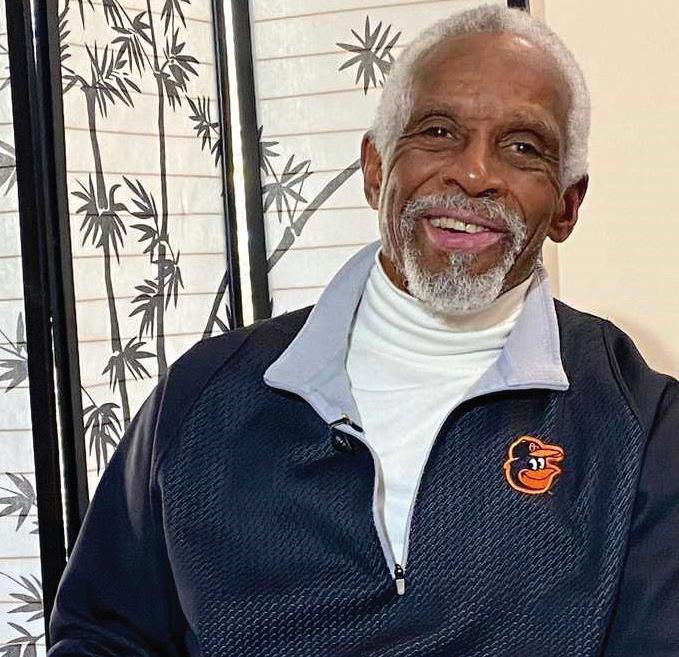

his second professional appear
Sneddon remained solid in extra time, blocking another AV Alta effort to preserve the 2-0 final.
The Kickers return home to City Stadium in their season finale on Saturday, Oct. 25 as they host Forward Madison for Fan Appreciation Night presented by Feed More.
of the season. In the 53rd minute, AV Alta threatened with a breakaway, but Richmond goalkeeper James Sneddon dived to deny the attempt. The home team extended its lead nearly 10 minutes later with a free-kick goal. Richmond continued to press late in the game. In the 86th minute, the Kickers earned another corner. Fitch sent a ball to James Vaughan on the right side, who passed to Griffin Garnett for a header that sailed just over the crossbar.
Richmond police officers, firefighters to face off in charity boxing event

Free Press staff report
Richmond police officers and firefighters will step into the ring for a charity boxing event on Wednesday, Nov. 5, at River City Roll. The event, River City Fight Night: Red Fight & Blue, begins at 7 p.m. and will also feature three professional bouts. The exhibition matches will pit police officers against firefighters, with Devin Davenport, Patrick Ripley, Nico Young, Cody Adams and Duane Peppel representing the Richmond Police Department and Wyatt Mesco, Mo’Reese Moore, Shalin Shah, Jerron O’Tey and Keivon Henderson representing the Richmond Fire Department. Proceeds will benefit organizations selected by each department: the American Kidney Fund for the police department and the Children’s Hospital Foundation for the fire department.
River City Fight Night is a monthly charity boxing series organized by River City Promotions. The series supports Guardian of the Gloves, a nonprofit that funds local youth boxing programs. Each event highlights Richmond’s boxing community and aims to bring the city together around themes of entertainment and giving. Tickets are $75 for general admission and $150 for ringside seats and can be purchased at rivercityboxing.com.
For almost four decades, Paulette Walker Johnson has been a defining force in HBCU cheerleading and an esteemed figure at Virginia State University. As the founder and former coach of the famed VSU Woo Woos, Johnson built more than a cheerleading squad — she built a movement rooted in rhythm, pride and community.
“It felt wonderful to have the success,” Johnson said. “We worked so hard. It wasn’t a shock that we did well.”
Since 1974, Johnson and the Woo Woos have set the standard for HBCU cheer programs. The Woo Woo style, also called the stomp-and-shake style, was the first of its kind in the school’s athletic conference. It drew from the rhythmic traditions of African American culture — including trends, church, Black Greek letter organizations and HBCU campus life — transforming cheerleading into a creative performance art that blends rhythm, precision and energy. Johnson also served as the first president and founder of the CIAA Cheerleader Coaches Association, reflecting her deep commitment to the sport.
“We built on what we had,” she said. “And what we had was rhythm, spirit and heart.”
Under Johnson’s guidance, the Woo Woos became ambassadors for Virginia State, known for their creativity, athleticism and school spirit. Their leadership and academic success on campus added to the squad’s appeal, making membership a goal for many aspiring young women at VSU. Born in Dinwiddie County, Johnson moved with her family to Petersburg as a child. She
grew fond of the city, a sentiment that extended to Virginia State, where she arrived fresh out of college at 22 to teach physical education.
“They told me that I would also be coaching the cheerleaders,” she said. “I had never coached cheerleading, but I was so grateful to get the job. My way of showing that was to do the best job I could.”
Johnson drew on her experiences as a cheerleader at Peabody High School in Petersburg and at Morgan State University. She and her squad combined their skills to create the Woo Woo style, which broke from traditional stunts, tumbling, jumps and multi-level pyramids.
To commemorate her contributions, she was given the VSU President’s Medal of Honor for her significant contributions to the university and the community.
Now retired, Johnson has not slowed down. She has launched a nonprofit, Woo Nation, which she envisions as both a legacy project and a mentorship platform. Her dream includes erecting a statue on Virginia State’s campus to honor the birthplace of the Woo Woo style and hosting camps and clinics for young girls across the region. Johnson also shares her voice as host of “Real Women Real Talk” on WVST and SiriusXM Channel 142, as well as in her book of the same name.
Johnson’s family is also entrenched in VSU athletics. Her son, who grew up on the school’s campus, earned a football scholarship to the school and graduated with honors. Her parents — both in their 90s — are lifelong
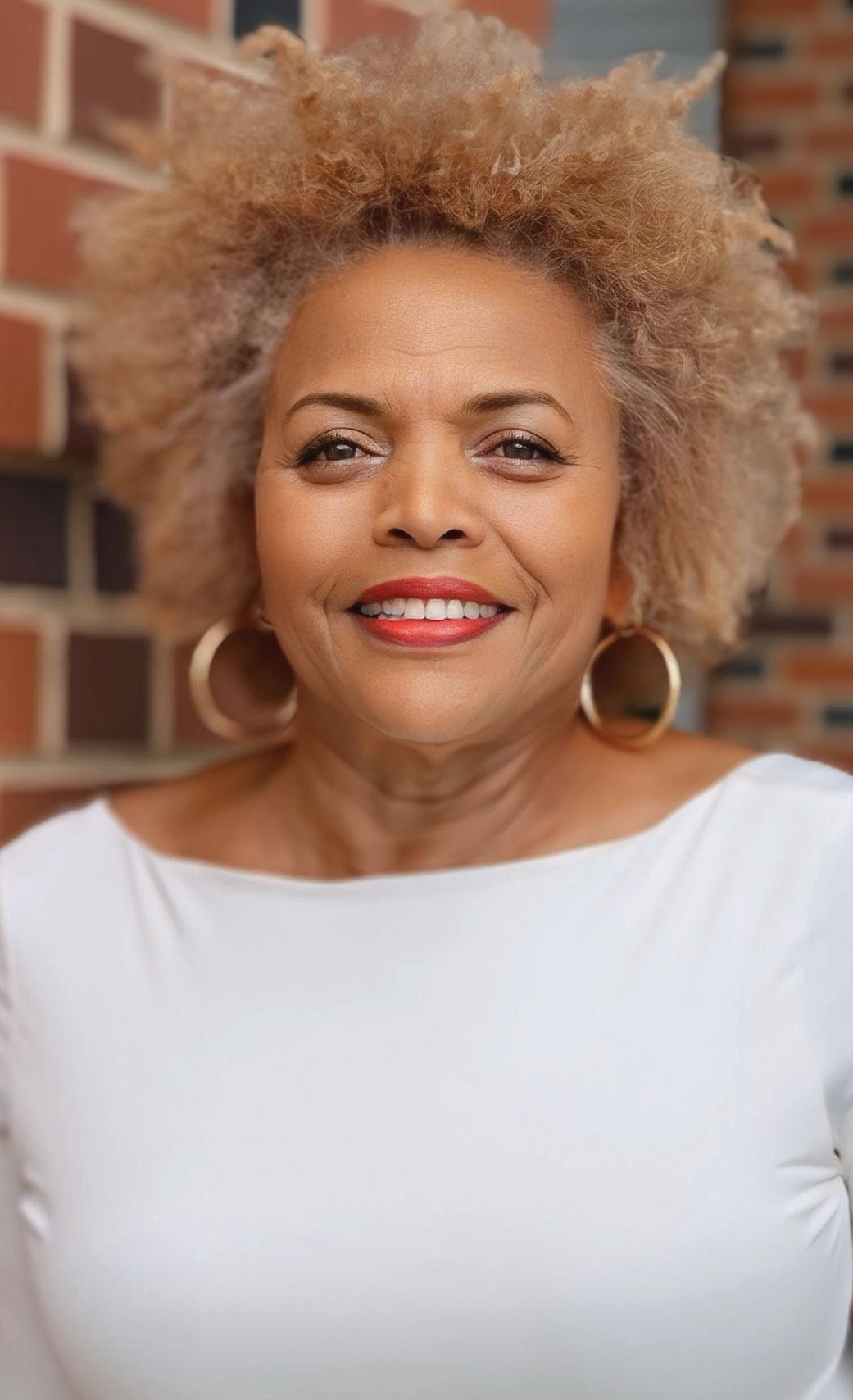
supporters of VSU sports and still attend games.
For Paulette Walker Johnson, the Woo Woo legacy extends beyond cheerleading. It is a testament to creativity, leadership and the power of community — a standard she built, nurtured and now shares with future generations.
Where do you live?
Petersburg. What’s your educational background?
I have a bachelor’s in health and physical education from Morgan State University; a master’s in education in physical education from Springfield College; and a Ph.D. in curriculum and instruction from Virginia Tech.
Tell us about your family.
I have a son, Patrick Wayne Johnson, a graduate of VSU, who is the vice president
and CEO of Woo Nation.
What is Woo Nation? Woo Nation, a nonprofit organization, is dedicated to preserving the Woo Woo legacy of creativity, athleticism and community leadership. We want to ignite the next generation.
What is Woo Nation’s mission?
First, we want to honor my contributions to VSU and the world of HBCU cheerleading, and declare VSU as the birthplace and home of the Woo Woos. Second, we envision annual camps and workshops for middle and high school students and their advisors, where the patterns and principles of the Woo Woos will be used to empower a new generation — fostering leadership, teamwork and that signature “Woo Woo Spirit.”
What areas does Woo Nation serve?
The Tri-Cities area.
When and how was Woo Nation founded?
My son and I founded Woo Nation in 2024. How can people get involved with Woo Nation?
We are accepting donations and seeking our alumni to provide services for our workshops, leveraging their expertise. For example, we have a successful salon owner who can offer healthy hair advice for the girls, but anyone can volunteer.
How is Woo Nation funded?
Corporate and individual donations.
How can people donate to Woo Nation?
There’s a “Woo Nation Operating Fund” dropdown box on the Virginia State University Foundation website.
How do you start the day?
I open my blinds, coffee and praise to God.
What are the top three songs on your playlist?
I like The Delfonics, and I also like “Doin’ Just Fine,” by Boyz II Men.
Who is your dream dinner party guest?
Former President Barack
Obama.
What is a quote that inspires you?
“To God be the Glory” from the hymn written by Fanny J. Crosby.
What are you currently reading?
I read local authors to prepare for my radio shows, but I’m also reading “Forgiveness: 21 Days to Forgive Everyone for Everything,” by Iyanla Vanzant.
What’s next?
My son and I are writing a book about single motherhood. It’s about how we’ve navigated life during good and challenging times.





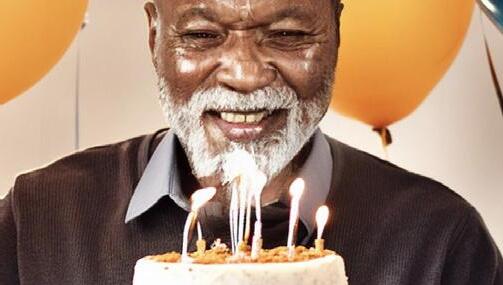
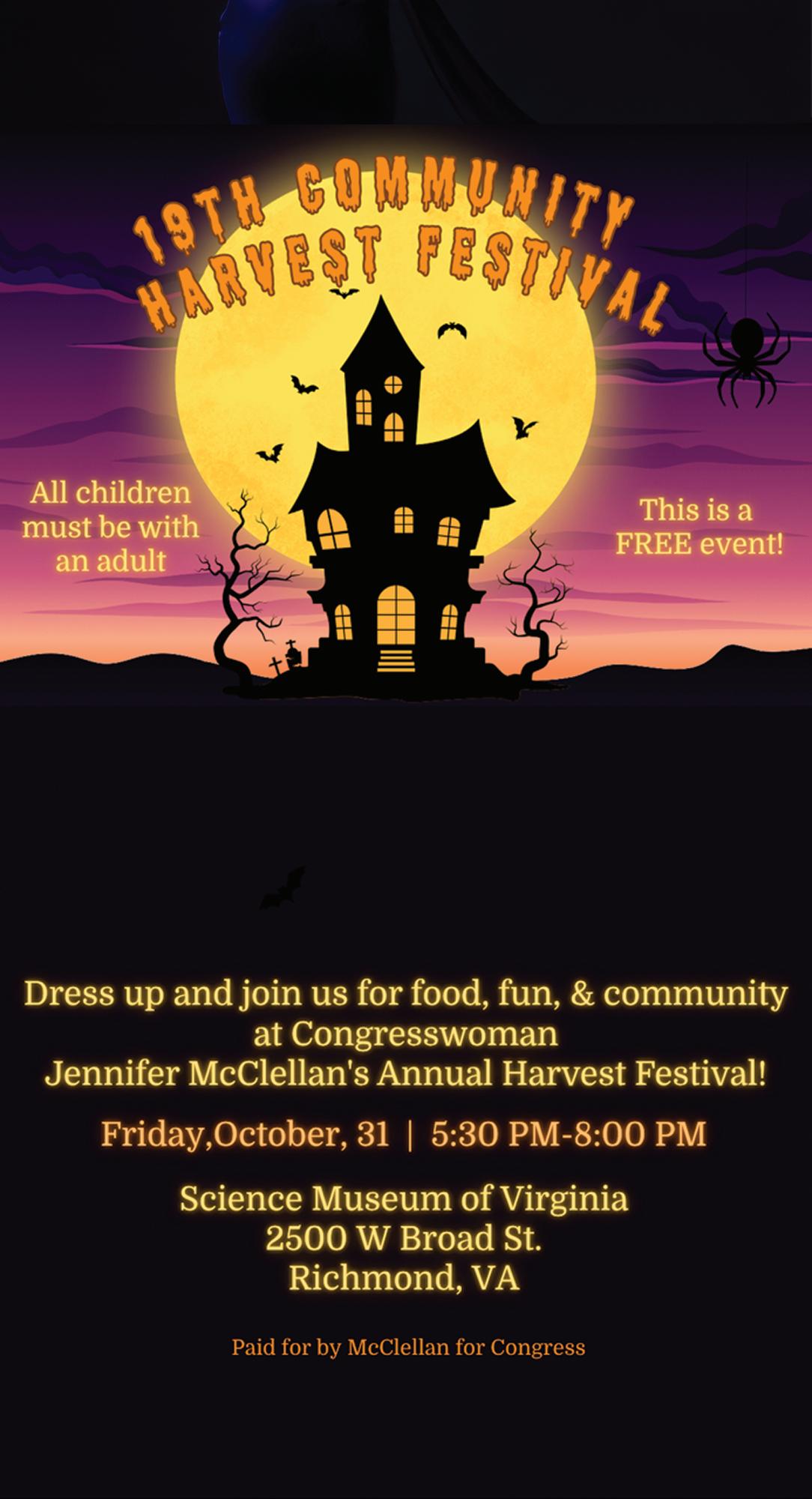


Free Press staff report
Richmond Triangle Play-
ers and Firehouse Theatre dominated the 17th annual Richmond Theatre Community Circle Awards, or Artsies, with Firehouse taking home 13 awards and the Triangle/ Firehouse co-production of “A Strange Loop” earning six honors, including Best Musical and Best Direction of a Musical.
The ceremony, held Sunday at Virginia Repertory Theatre’s Sara Belle and Neil November Theatre, celebrated excellence in Richmond-area theater and highlighted the theme “At This Performance,” honoring standbys, swings and understudies who keep productions running smoothly.
“A Strange Loop” also won awards for Best Musical Direction, Best Lead Performance in a Musical, and achievements in costume and lighting design. Richmond Triangle Players received an additional award for Outstanding Achievement in Costume Design for “5 Lesbians
Richmond celebrated Indian culture and traditions at the Diwali Music & Arts Festival on Oct. 18 at the Virginia Museum of History & Culture. The event, hosted in collaboration with The Rith Initiative, featured classical and folk dances, a Ramayan puppet show, a “Drapes of India” fashion show, henna and rangoli stations, and an arts bazaar highlighting local artisans.


Marcus Antonio, center, plays Usher in Richmond Triangle Players and Firehouse Theatre’s production of
Loop,” which won six awards at the 17th annual Richmond Theatre Community Circle Awards.
Eating a Quiche.” Firehouse Theatre’s “Detroit ’67” won Best Play, with Katrinah Carol Lewis and Jeremy V. Morris receiving awards for lead and supporting performances, respectively. Firehouse also earned honors for “Peter and the Starcatcher,” “Water by the Spoonful” and Andrew Gall’s “Burial Tax.”
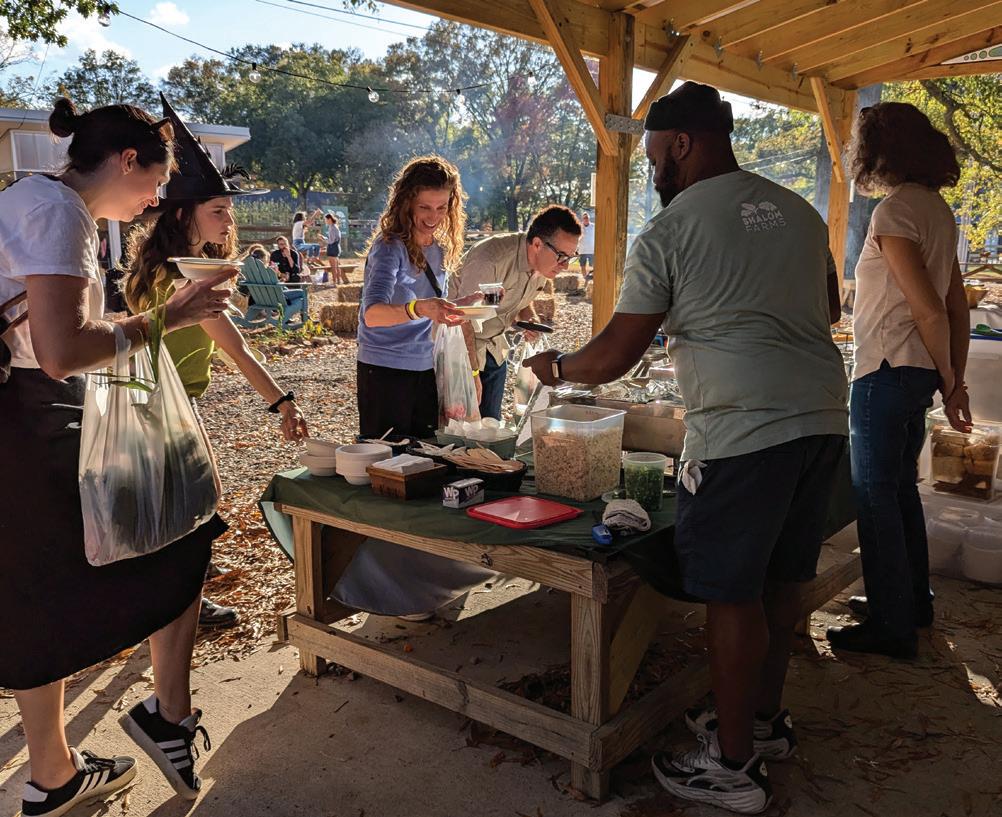
Free Press staff report
Shalom Farms will hold its fourth annual Harvest Festival on Wednesday, Oct. 29, from 5 to 8 p.m. at its Northside Farm, 1311 Westwood Ave.
The family-friendly event will feature a shared dinner, live music, a picnic basket raffle and a Mobile Market stocked with fresh fall produce. Visitors can also enjoy farm tours; fire pits with s’mores; hot cocoa and cider; and seasonal crafts and activities for all ages.
Organizers said the evening will include a special recognition of volunteers who support the organization’s mission throughout the year.
“Our Harvest Festival is such a lovely opportunity to be with community, reflect on the accomplishments of the season, and celebrate all of the people that make our work possible,” said Hannah Wittwer, director of engagement at Shalom Farms.
A $25 donation is suggested, offered on a sliding scale. All donations include entry into the raffle and support Shalom Farms’ efforts to expand access to healthy food across Richmond. For more information, visit shalomfarms.org.
Virginia Repertory Theatre captured six awards, including three for “Waitress,” which took Best Supporting Performance in a Musical and Outstanding Achievement in
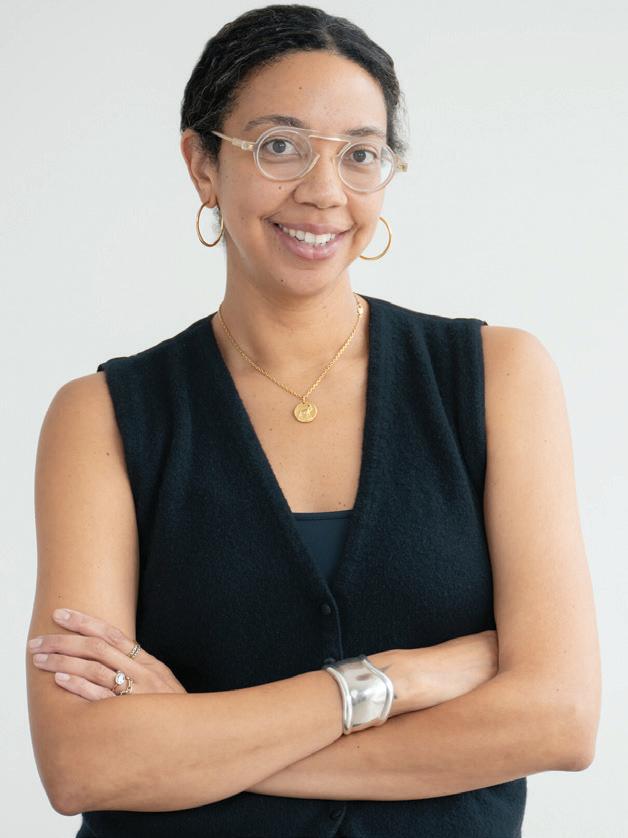
Set Design. Its productions of “Charlie and the Chocolate Factory” and “Misery” also received design honors.
Richmond Shakespeare earned three awards, includ-
ing the Ernie McClintock Best Ensemble Acting Award for “The Complete Works of William Shakespeare” (abridged). James Murphy won Best Lead Performance in a Play for
“Cyrano de Bergerac,” and Paisley LoBue earned Best Supporting Performance for “A Midsummer Night’s Dream.” Other winners included Lindsey Zelli for Best Lead Performance in a Musical for “The Spitfire Grill,” Marcus Antonio for “A Strange Loop,” Ayla Hanna-Elizabeth Clinton for Breakout Performance in “The Diary of Anne Frank” and 5th Wall Theatre for “H*tler’s Tasters.” The Legacy Award honored the founders of Richmond Triangle Players for establishing a lasting LGBTQ+ theater presence in Richmond and contributing to the city’s arts community. The Artsies also serve as the primary fundraiser for the Theatre Artist Fund of Greater Richmond, which provides emergency financial support to local theater artists in need.
Free Press staff report
The Institute for Contemporary Art at Virginia Commonwealth University has promoted two longtime staff members to leadership roles designed to strengthen the museum’s exhibitions and programming.
Amber Esseiva has been promoted to Senior Curator and Director of Curatorial Affairs, and Nebiat Gereme has been named Director of Exhibitions and Program Alignment, a newly created position. Together, they will oversee the planning and coordination of the ICA’s artistic programming and public engagement efforts.
Esseiva, who had served as acting senior curator since 2024, joined the ICA in 2016 as a curatorial assistant. Over the past nine years, she has helped organize more than 19 exhibitions, including “Dear Mazie” (2024), the first contemporary art show
dedicated to the life and work of Amaza Lee Meredith. That exhibi tion is now on view at the California African American Museum.
Her other projects include “Great Force” (2019), which examined race and representation, and the ICA’s presentation of Julien Creuzet’s reimagined French Pavilion from the 60th Venice Biennale.
Esseiva also established the ICA’s guest curator program.
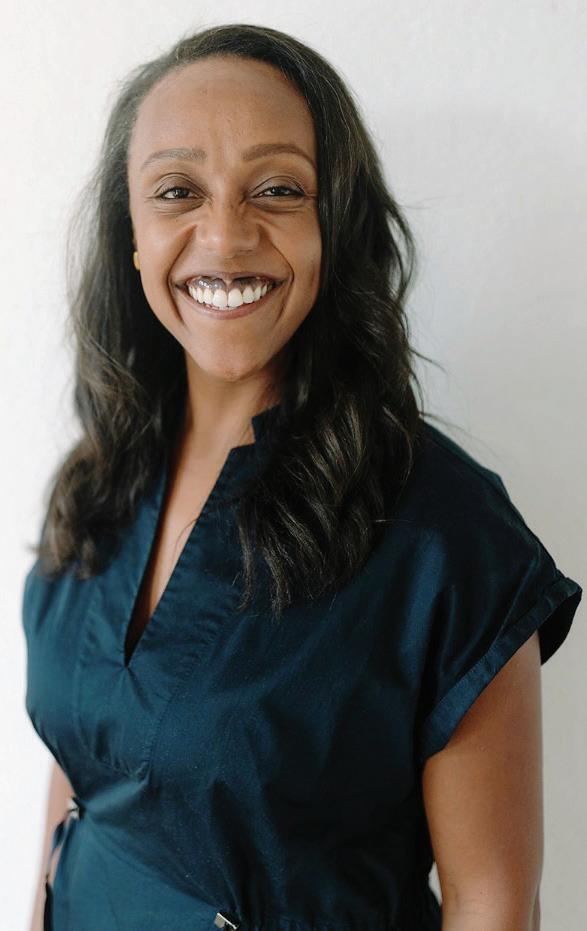
Gereme joined the ICA in 2019 and has served as head of exhibitions since 2021. She has overseen 23 exhibition projects, including artist commissions and the VCUarts MFA Thesis Exhibition. In her new role, she will manage fiscal planning for exhibitions, publications and programs.
“These promotions are a testament to the dedication, excellence and collaborative spirit of two remarkable colleagues,” ICA Executive Director Jessica Bell Brown said in a statement.
The Virginia Museum of Fine Arts has named Wai Yee Chiong, Ph.D., as its new E. Rhodes and Leona B. Carpenter Curator of East Asian Art, following an international search. She began her new role on Oct. 10.
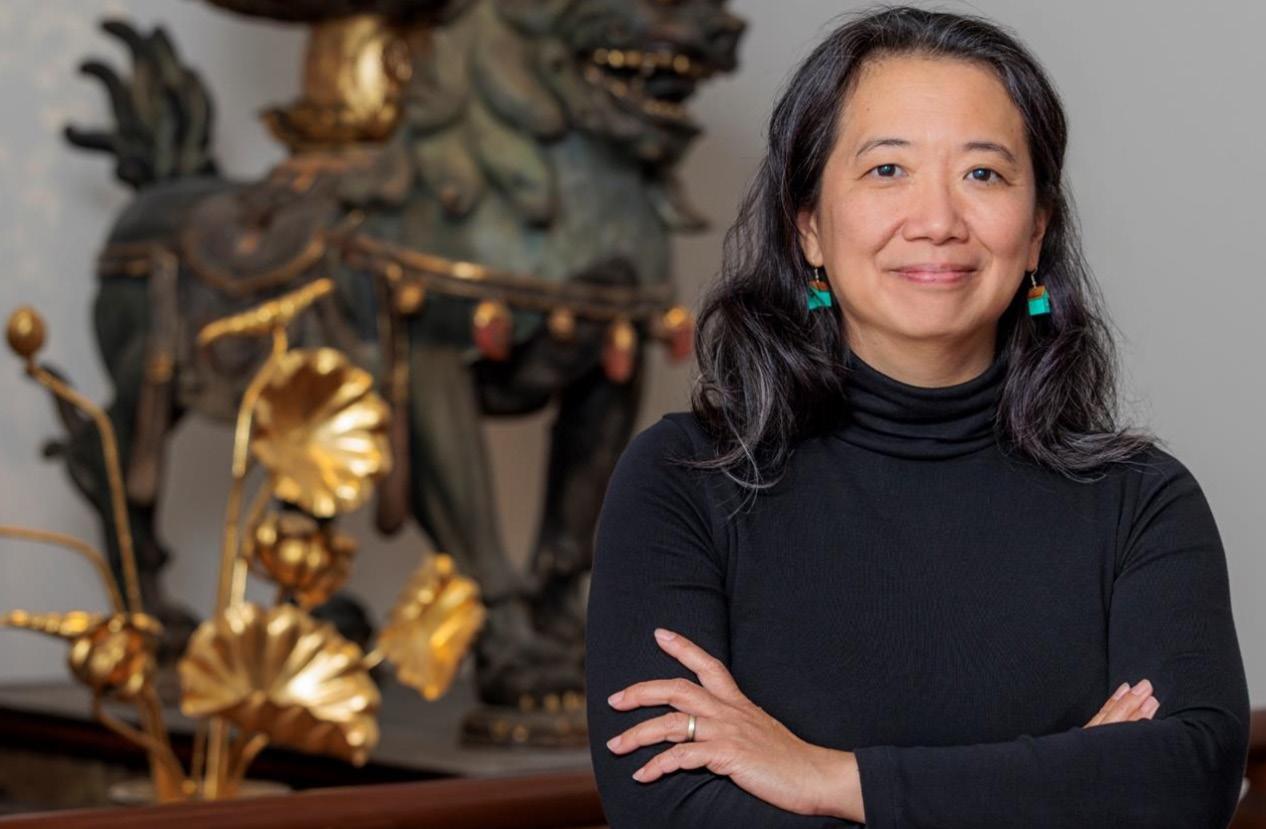
Chiong joins the VMFA from the Rhode Island School of Design Museum, where she served as Curator of Asian Art for seven years. There, she managed a collection of about 4,300 objects and organized several notable exhibitions, including “Being and Believing in the Natural World” and “Take Care!” the museum’s first staff-curated exhibition on climate change and sustainability.
At the VMFA, Chiong will oversee more than 2,500 works from China, Japan and Korea, a collection that includes bronzes, ceramics, glass, jades and paintings. She succeeds Li Jian, who retired in August 2024 after 17 years with the museum.
“We are delighted to have someone with Wai Yee’s deep knowledge, thoughtful vision and extensive experience joining
the curatorial team,” said VMFA Director and CEO Alex Nyerges.
“As an accomplished curator with an international reputation in the field, she will advance the curatorial vision for the museum’s renowned collection of East Asian art.” Chiong said she looks forward to expanding how visitors engage with the museum’s holdings.
“I am excited to join VMFA and work with its esteemed collection of East Asian art,” she said. “I look forward to organizing engaging exhibitions that welcome new audiences and foster different ways of looking at art.” Before joining the RISD Museum, Chiong held positions at the
and conducted research in Tokyo as a Japan Foundation Fellow.
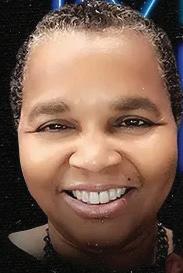
Free Press staff report
The Men’s Master Summit will host its fall 2025 gathering on Saturday, Oct. 25 from 9 a.m. to 4 p.m. at Virginia Union University’s Living and Learning Center.
Following an inaugural event in February, the summit will bring together business and spiritual leaders from across Virginia to share expertise aimed at empowering, supporting and mentoring men.
The day will feature curated spaces for discussions on topics including the state of Black and brown America,
Free Press staff report
The Virginia Interfaith Center for Public Policy is relaunching its annual “Interfaith Souls to the Polls” initiative to encourage early voting across the state in the final two weekends before the 2025 election.
The events, scheduled for Oct. 25 and Nov. 1, will bring congregations together in multi-vehicle caravans to early voting sites. Highlights will include community programming with refreshments and entertainment as well as remarks from local leaders.
The initiative aims to reverse a recent 20% decline in early voter participation and follows a longstanding tradition of faithbased “Souls to the Polls” events that promote civic engagement within religious communities.
The VICPP is providing resources to congregations to help spread the word about early voting.
“One key purpose of Interfaith Souls to the Polls is to galvanize the faith community into civic engagement,” said the Rev. Dr. LaKeisha Cook, co-executive director of the Virginia Interfaith Center. “It’s an opportunity to highlight issues in our community such as child care costs for families. By bringing together congregations to participate in early voting, we can make sure that the leaders we elect will address the issues that matter most to us.”

The events will also highlight the urgent need for affordable child care. In Virginia, the median annual cost for child care ranges from $14,560 for preschool to $18,759 for infants, requiring families to earn between $208,000 and $267,986 to cover expenses.
In Richmond, the events will be held Oct. 25 from 11 a.m. to 3 p.m. at City Hall and Nov. 1 from 11 a.m. to 3 p.m. at the Hickory Hill and Laburnum Avenue polling sites. Congregations are encouraged to include messages about voting in their services to remind members of their civic responsibilities.
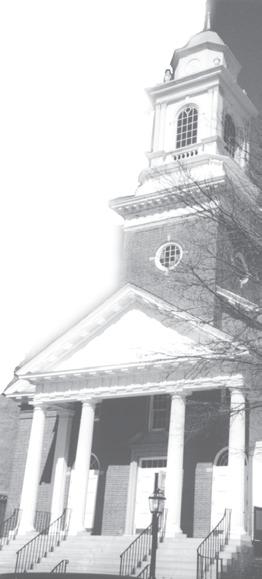
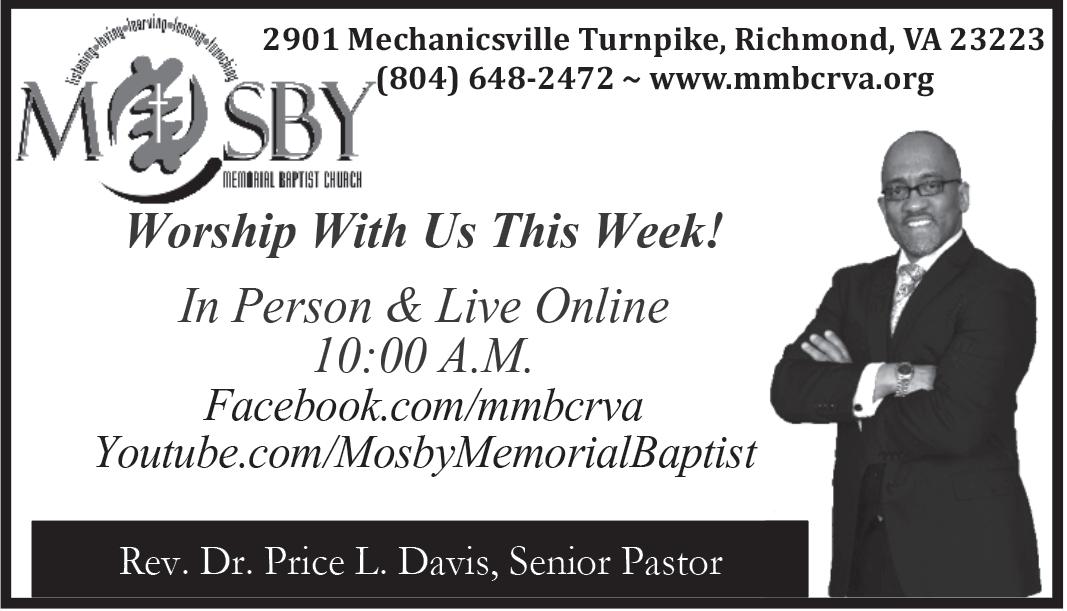
social media, relationships, fatherhood, mental health, grief, financial literacy, wills and trusts, music and mentoring as well as a youth panel.
Founder Sheilah Belle said the event was inspired by a desire to address challenges facing men and communities.
“With marriages on the decline, broken households on the rise, and situationships becoming more common, our society and communities are at a deficit,” Belle said. “If we are going to turn things around, especially in the climate we are in, we need to have the conversations now that will make a positive difference.”
This year’s speakers, facilitators and panelists include VUU President Hakim J. Lucas, Kym Grinnage, Anthony M. Chandler Sr., Autie Hines, Joe Massie, Jon Siler, Jonathan Davis, Minister Leon Medley, Joel Brown, Apostle Mike Hathaway, Coach Earl Jarrel, Justice Peebles and Tye Berkely.
The event is co-hosted by Belle and comedian Michael “Bam-Bamm” White and is supported in part by VUU, Anthem Health Keepers Plus, LifeNet Health, Joseph Jenkins Funeral Home, New Jerusalem International Christian Ministries and FourDeep. Registration is free but required at thebellereport.com.
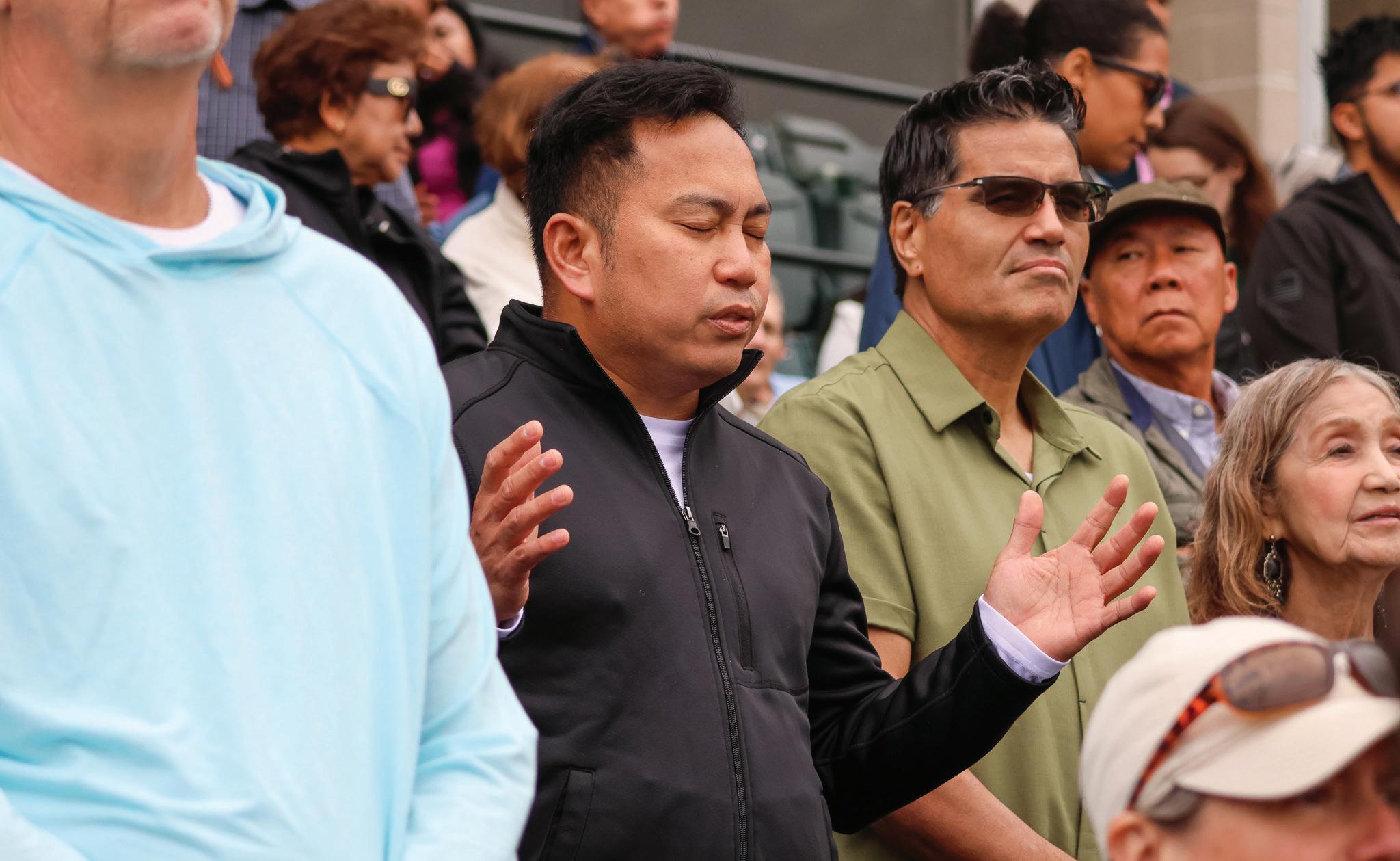
Free Press staff report
The Catholic Diocese of Richmond welcomed thousands to The Diamond for its first Catholic Fest, a daylong celebration of hope, faith and community.
The free event, held Oct. 11 from 10 a.m. to 9 p.m., drew about 2,500 people from across the state. Organizers described the festival as a chance for people of all backgrounds to come together and celebrate what unites them.
The event featured live music, food trucks, local performances and a Kids’ Zone with inflatables, a petting zoo and a magician. Guests also attended Mass inside the stadium and heard from faith-based speakers throughout the day.
Evening performances included national acts Scythian, The Young Escape and Marie Miller, who took the main stage on the baseball field.
“During the year of the Jubilee of Hope, at this Catholic Fest, and every day, we have the opportunity for renewal and being freed from the burdens, the chains that bind us, keeping us from growing in faith, hope and love, from knowing and living God’s


life,” Bishop Barry C. Knestout said.
The celebration marked the beginning of the 2025 Jubilee Year of Hope, a special observance in the global Catholic Church. Diocesan officials said Catholic Fest was created to share joy and unity in what they described as a divided time, offering the community “a beacon of light” and a chance to promote peace.


